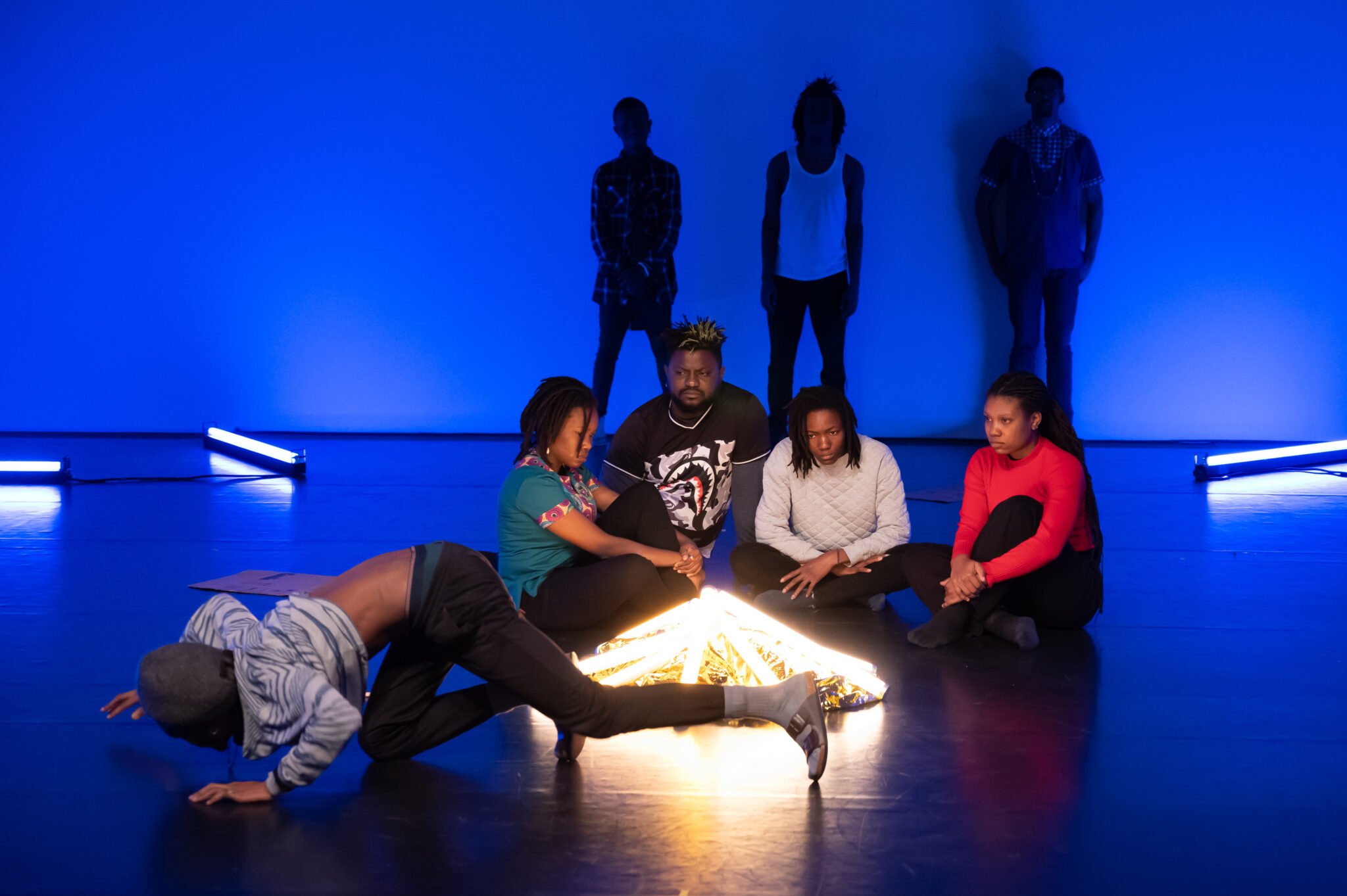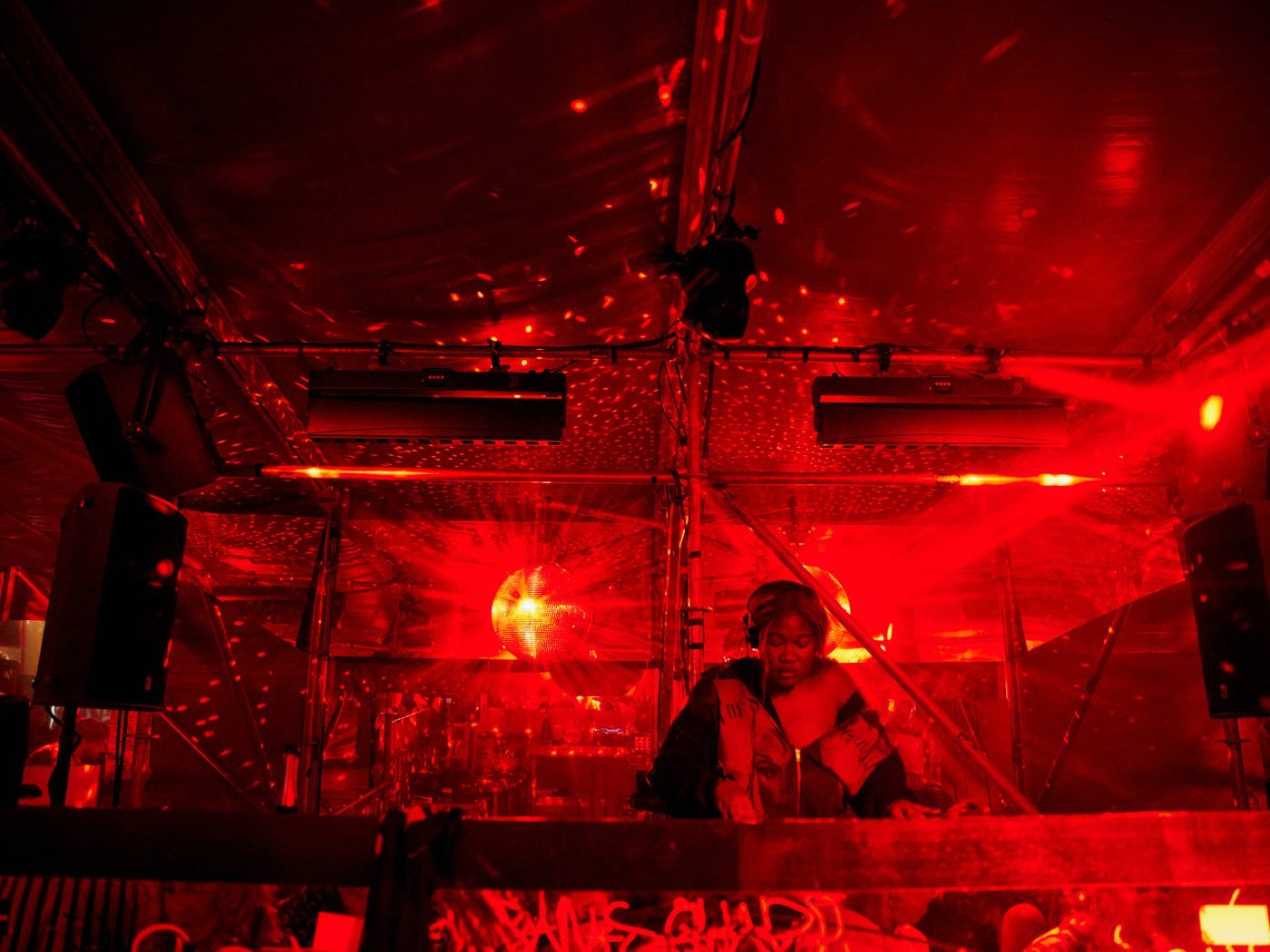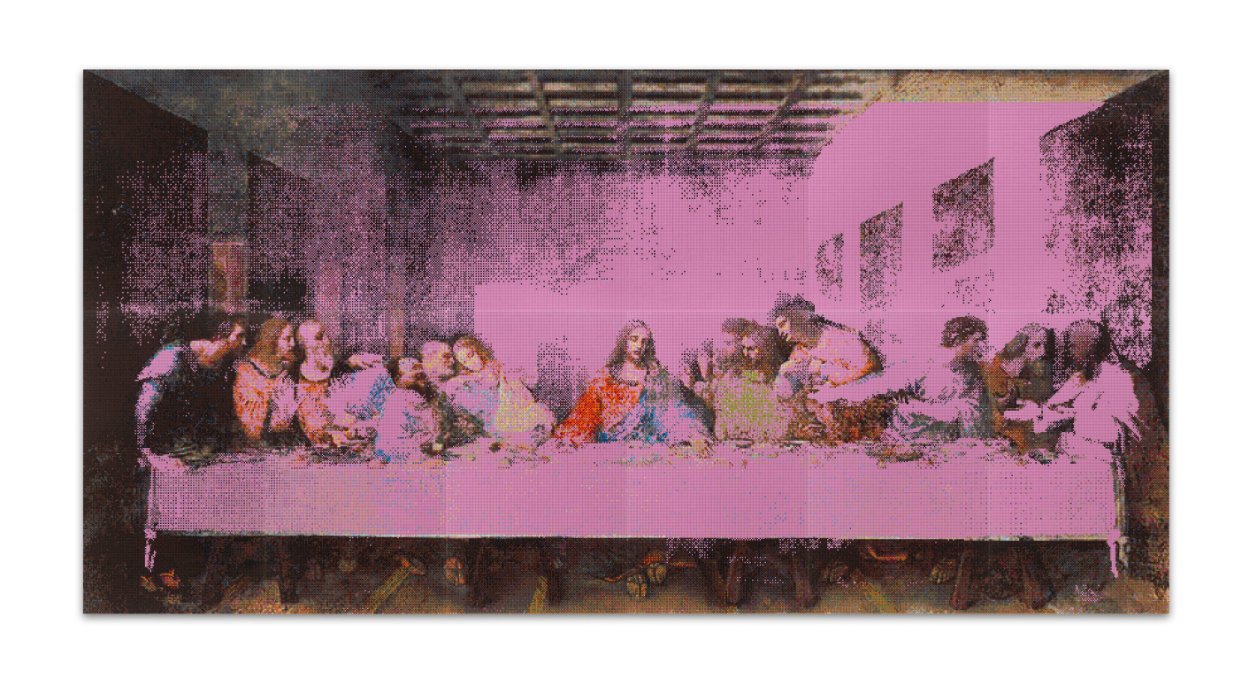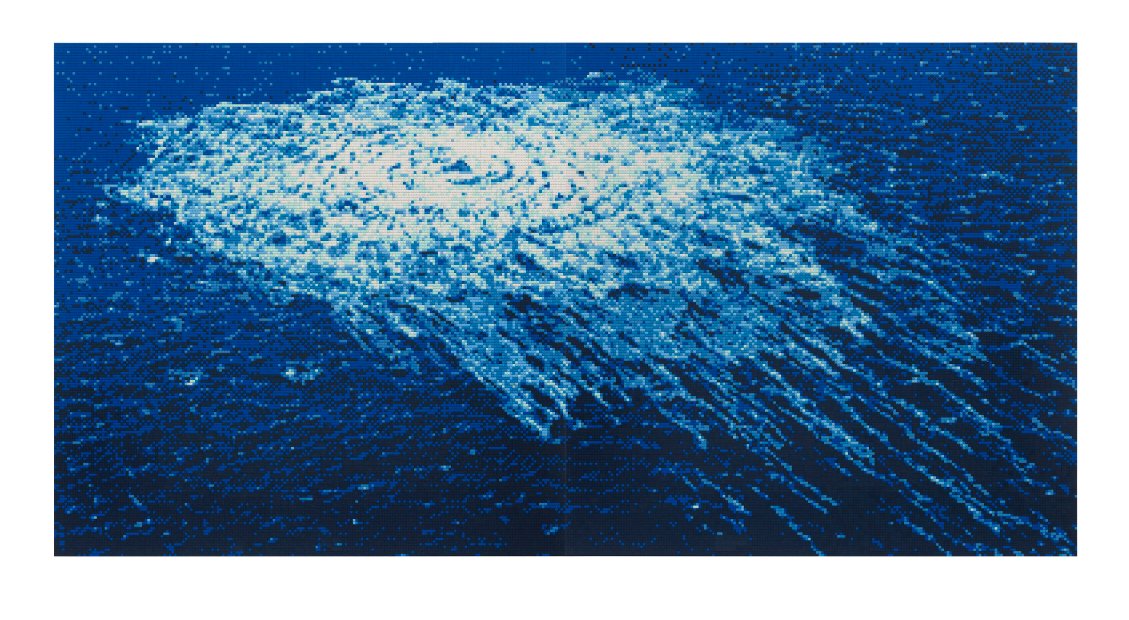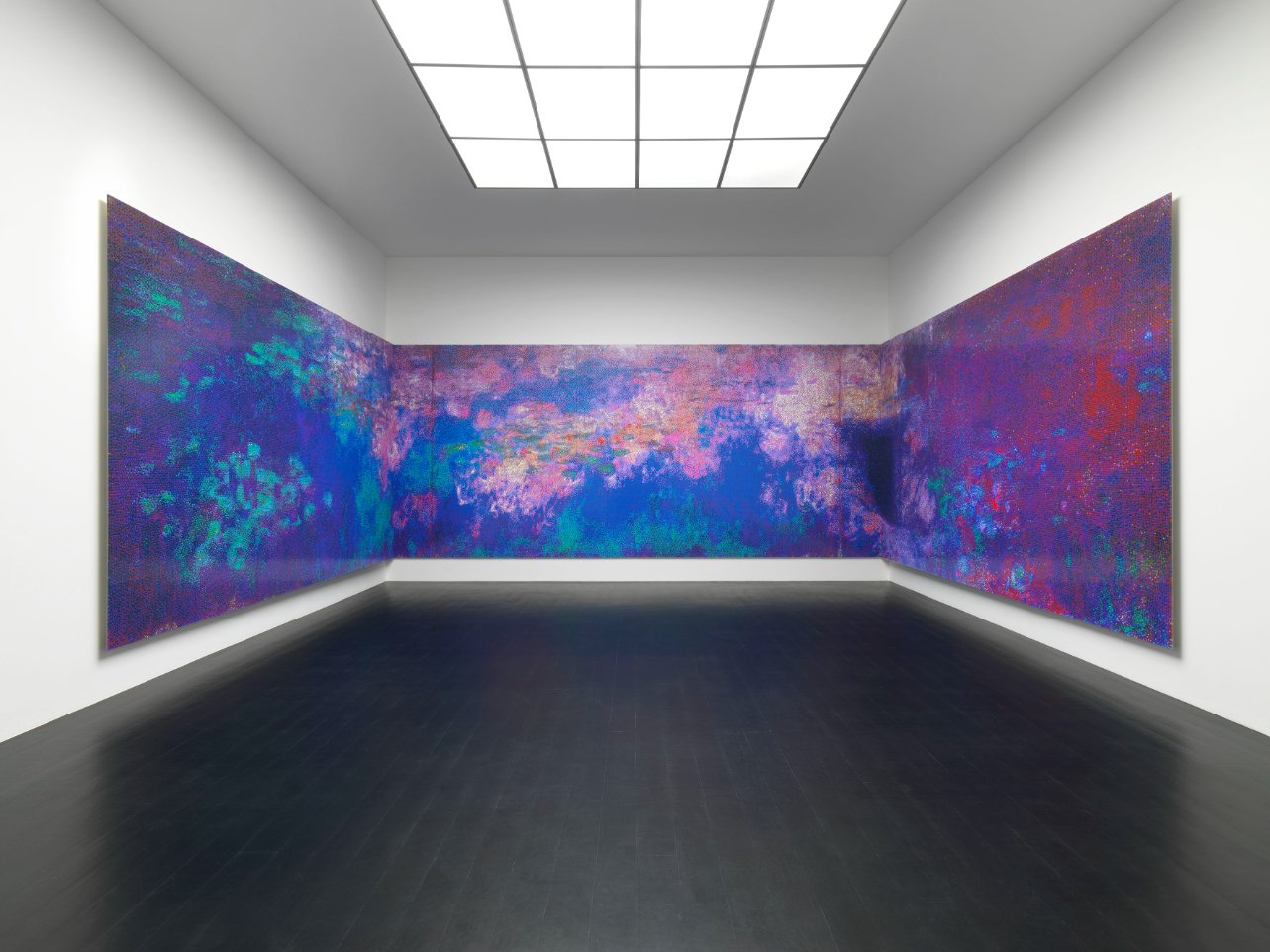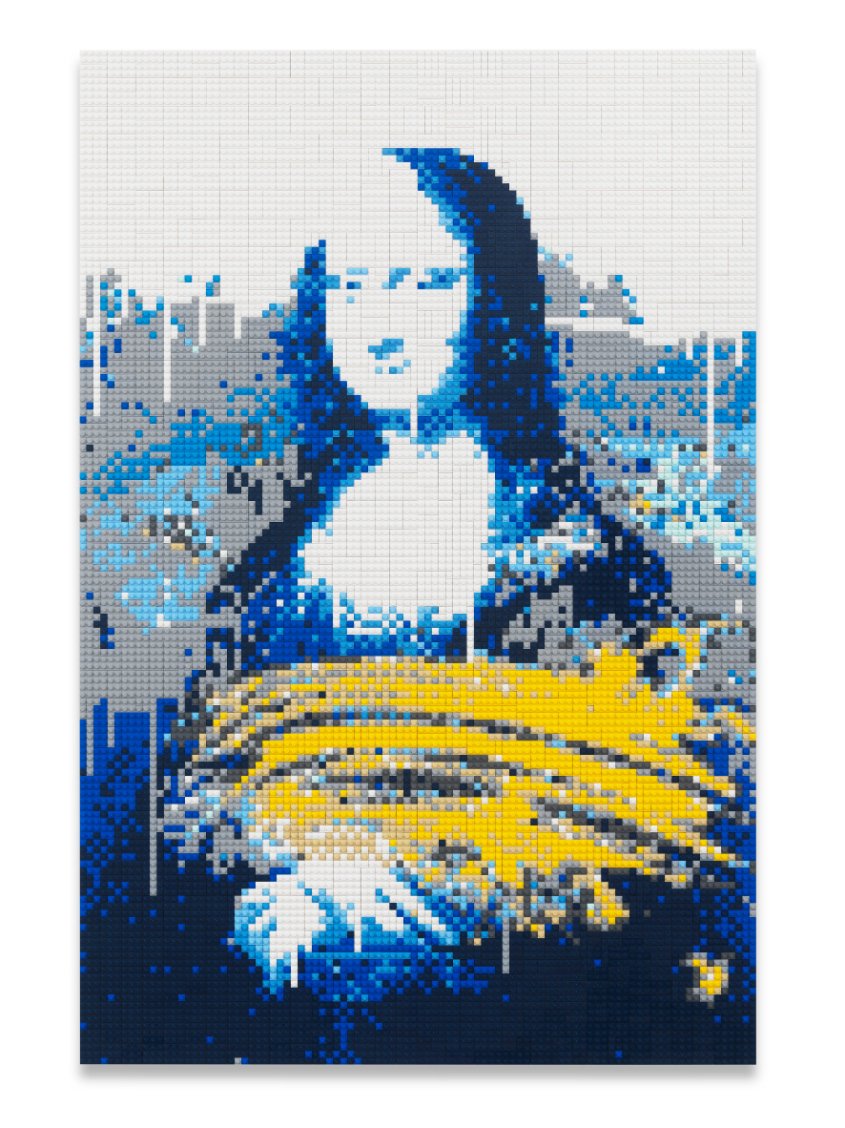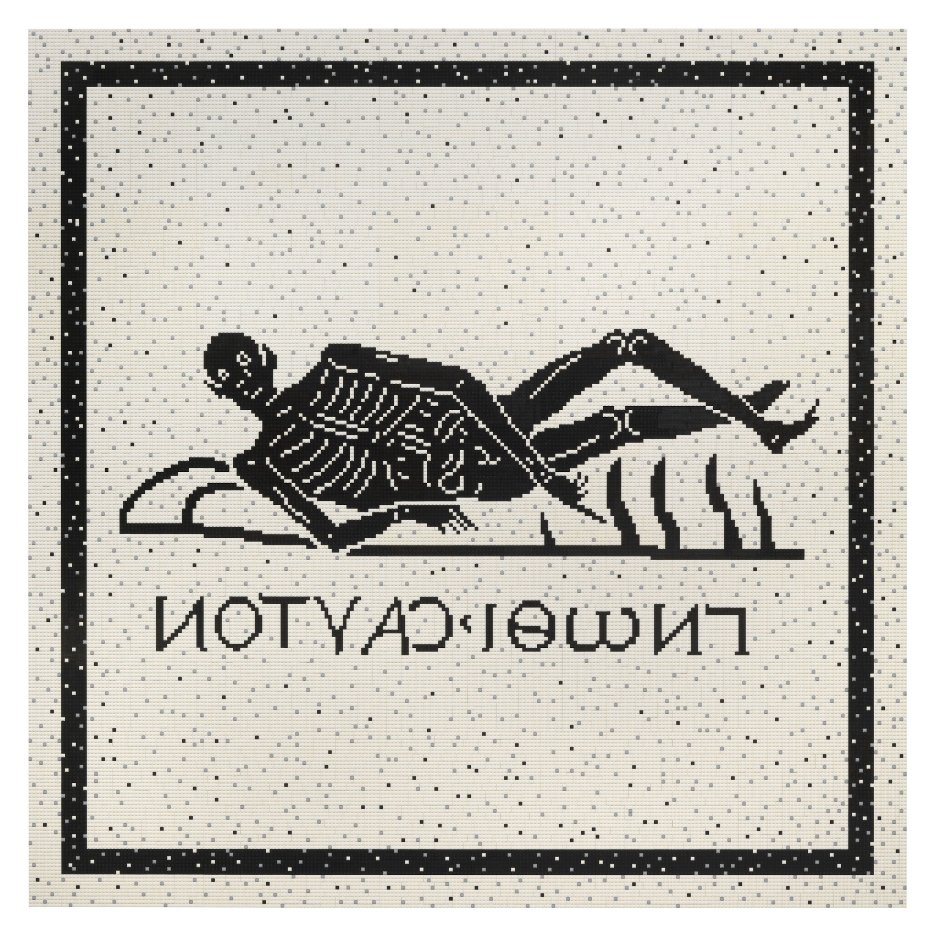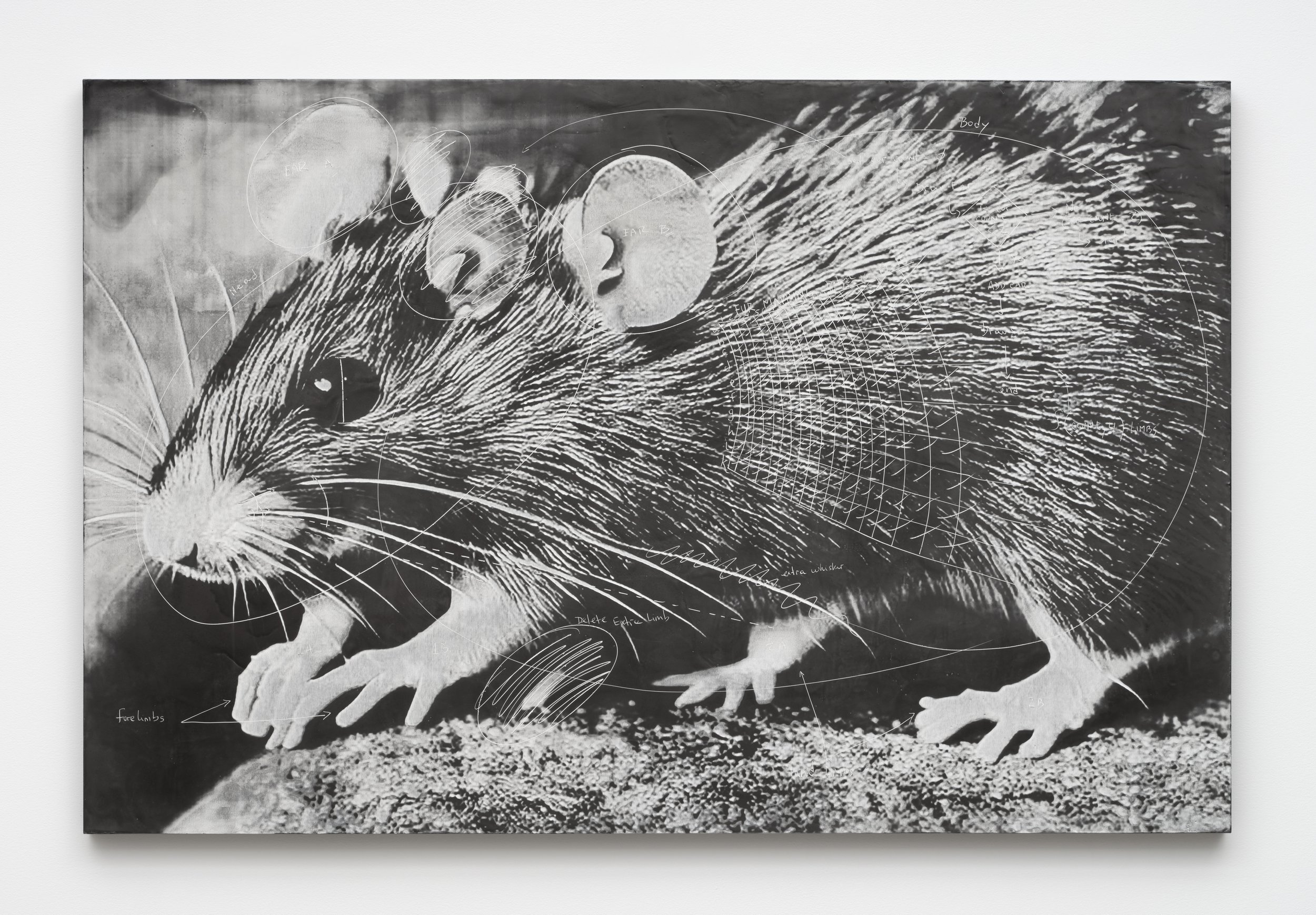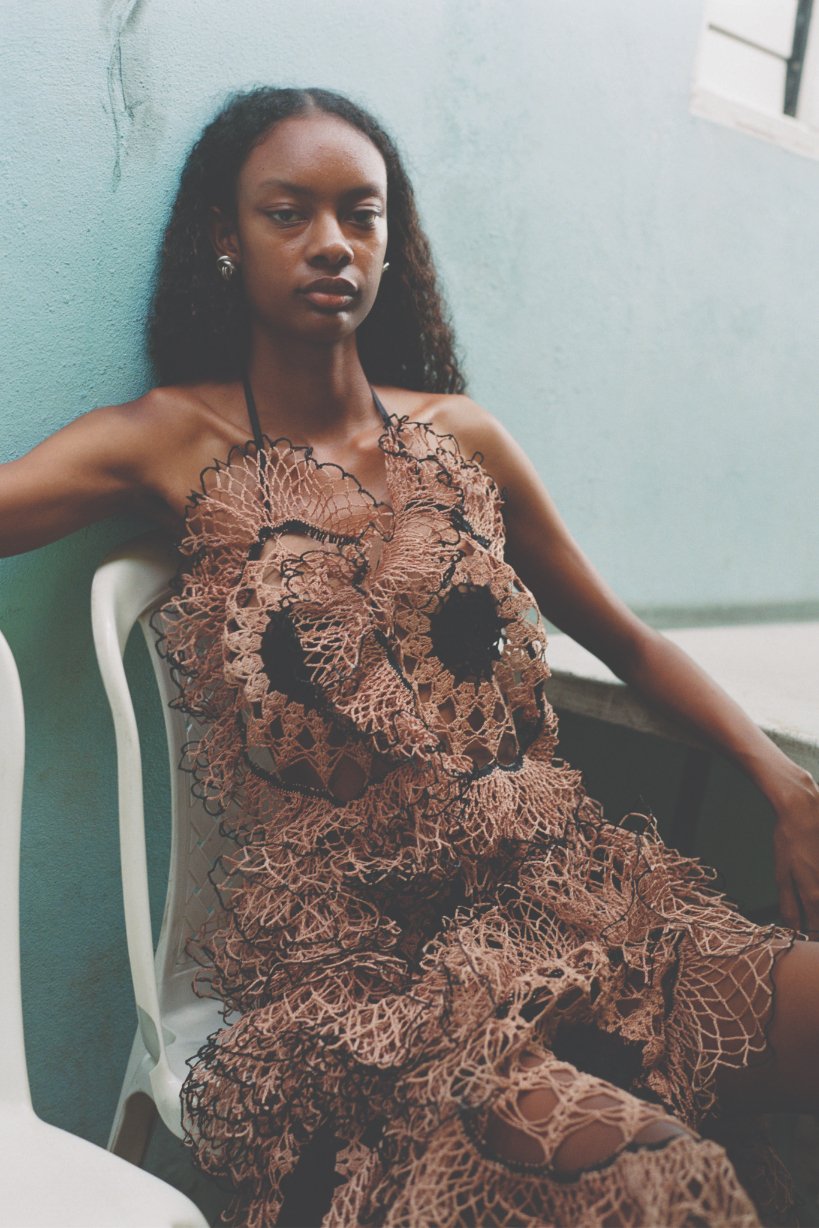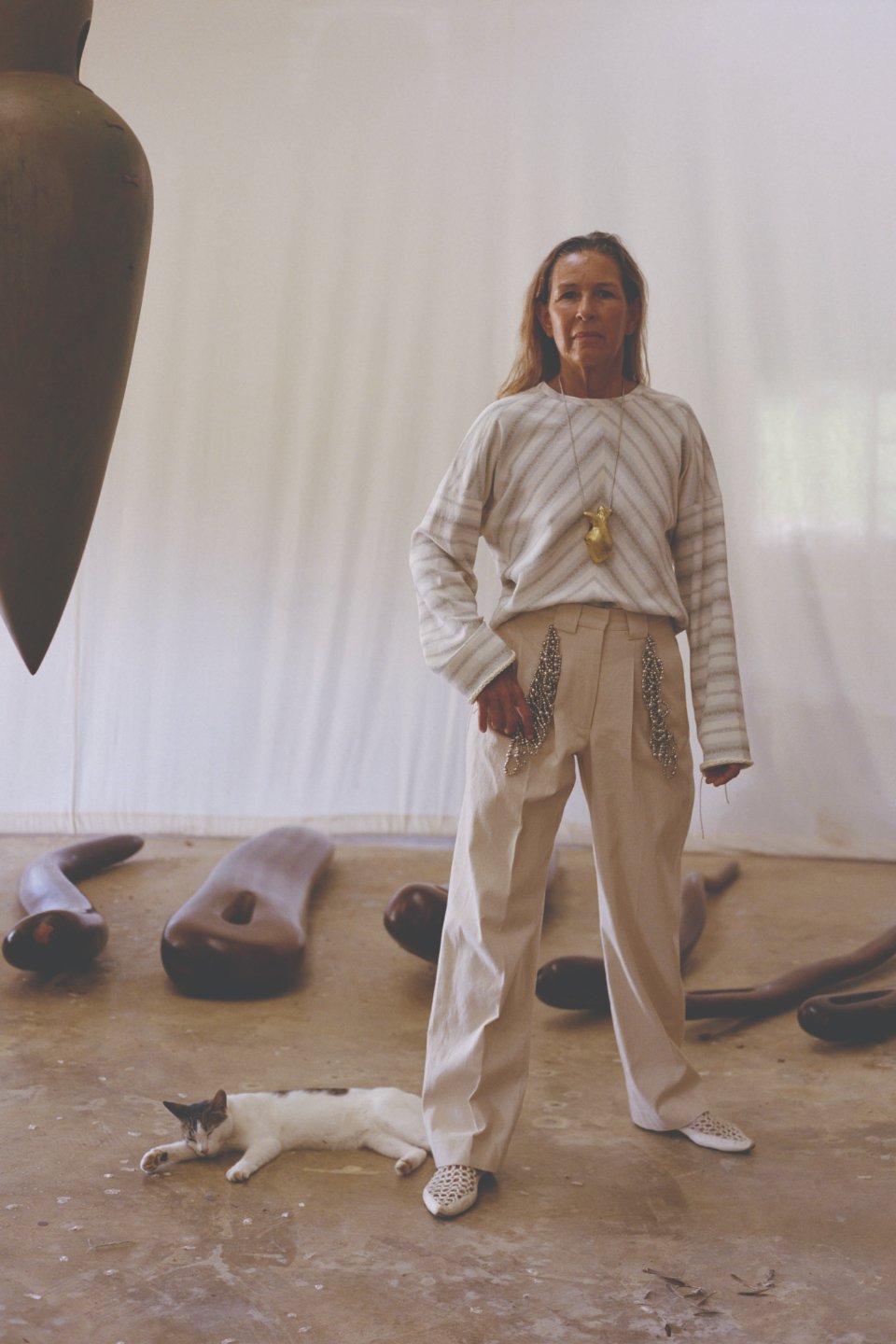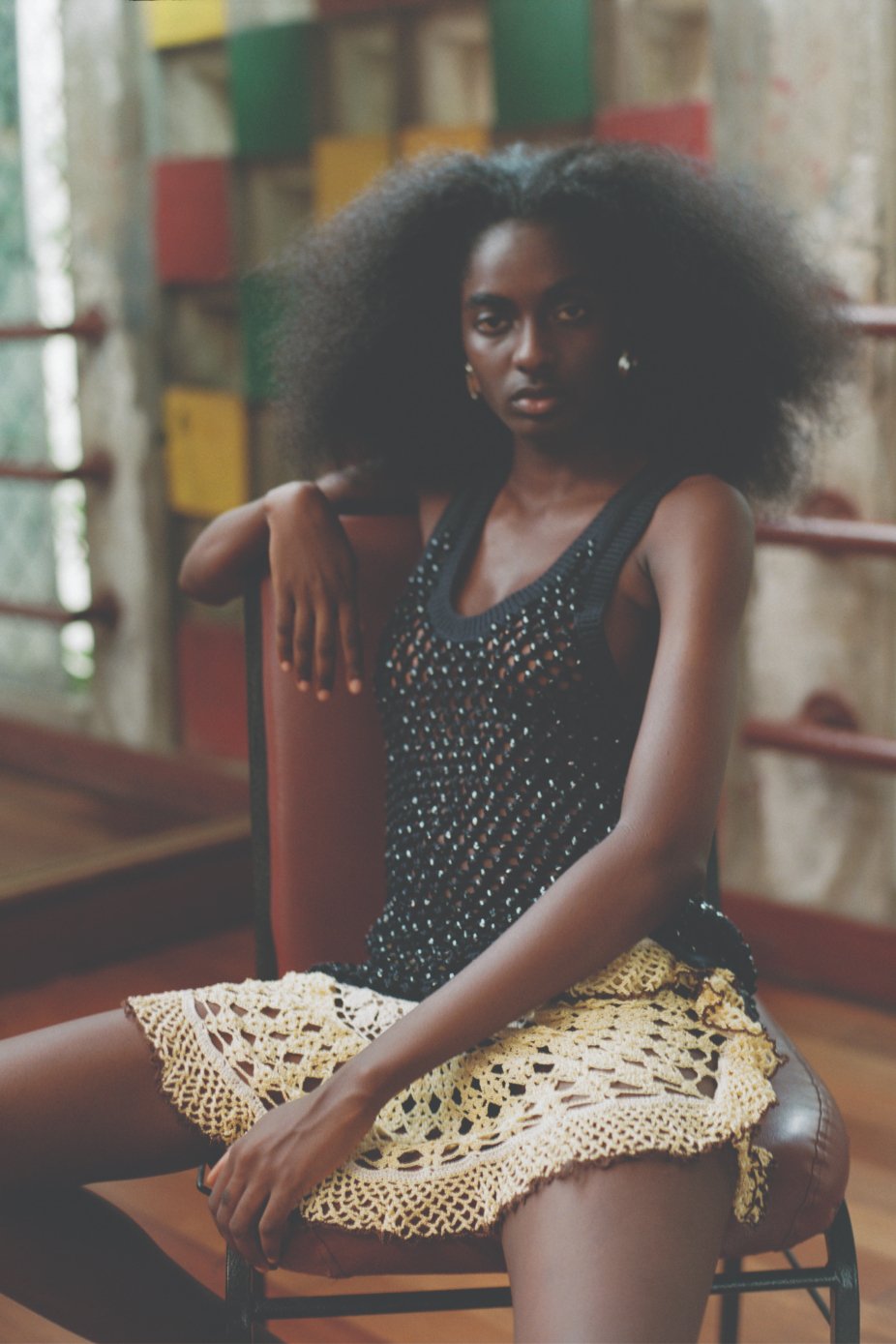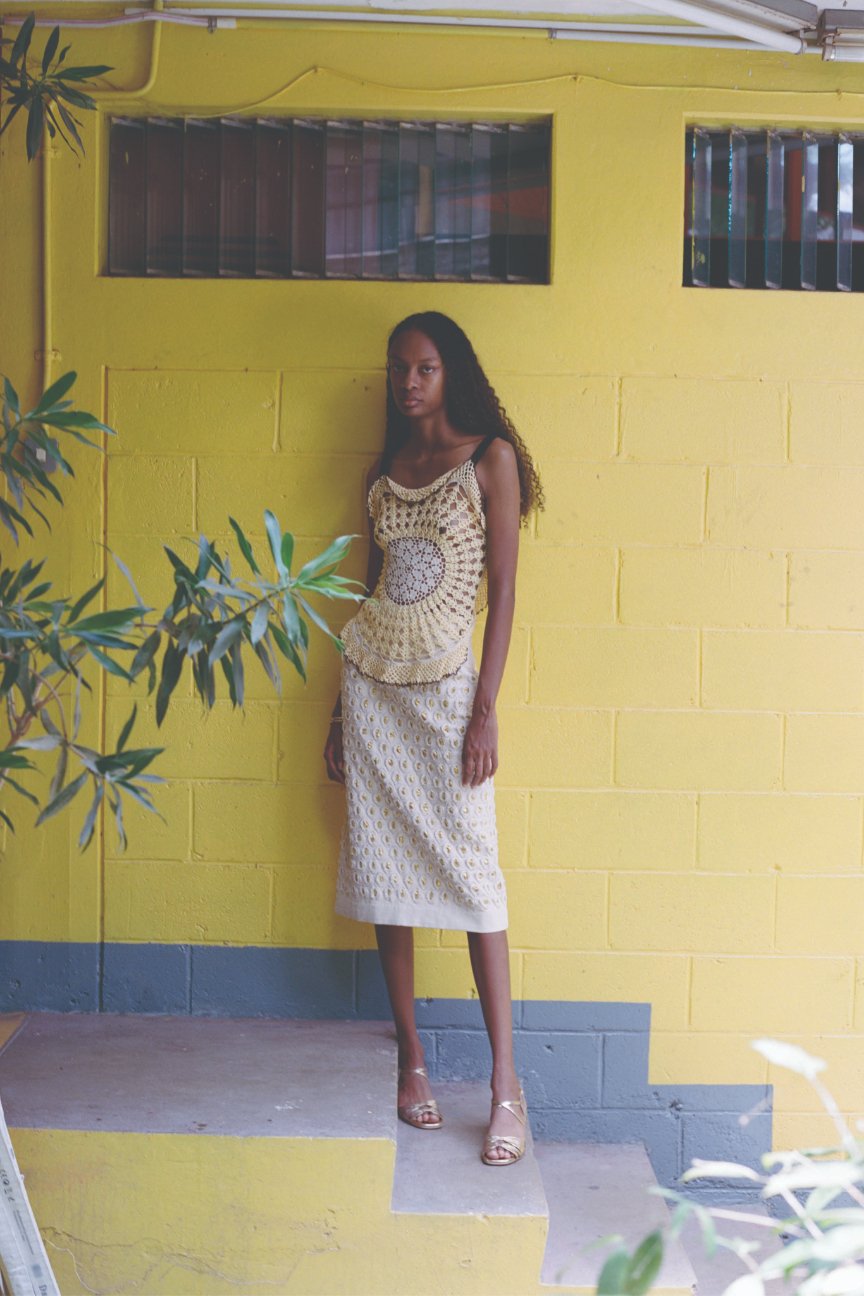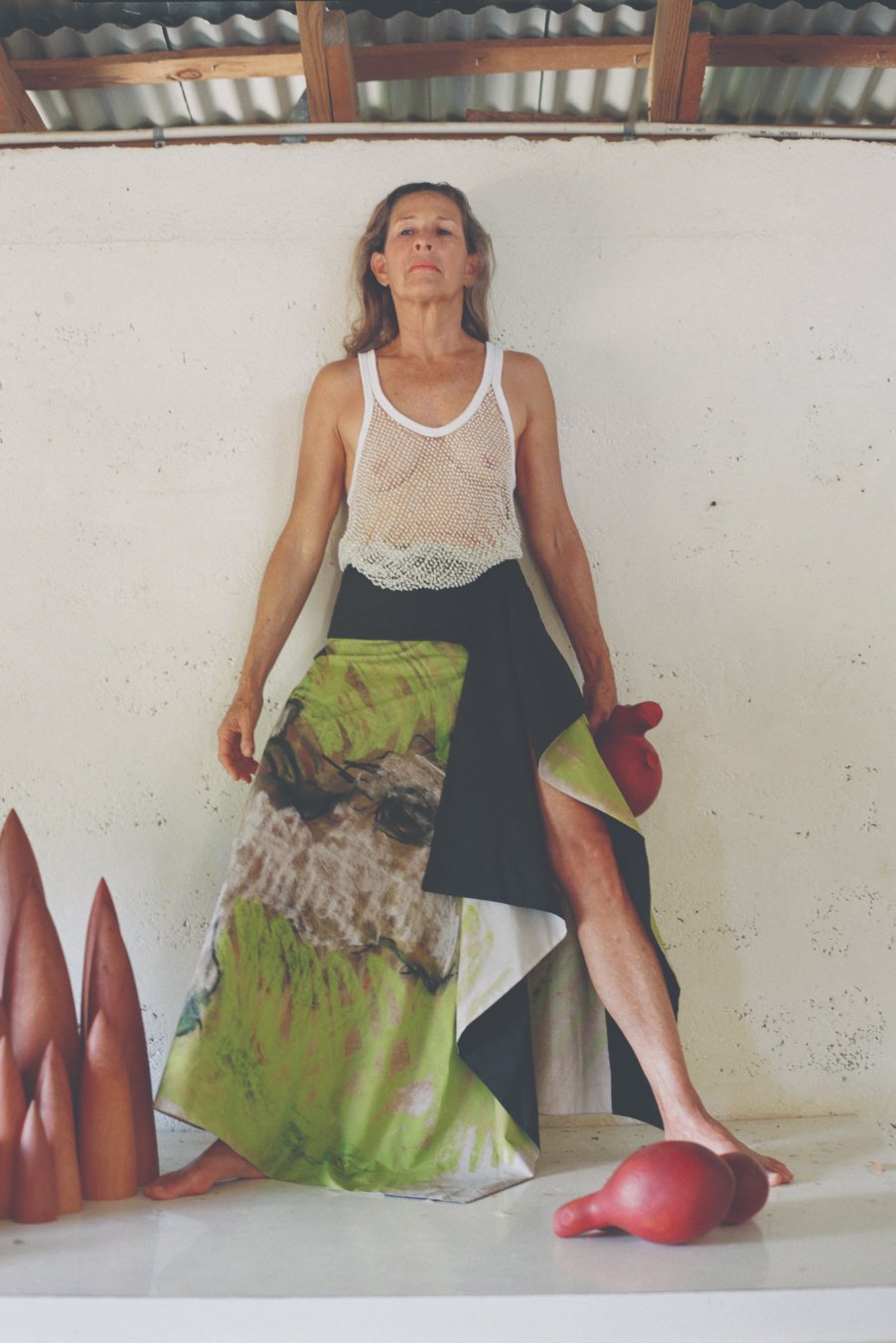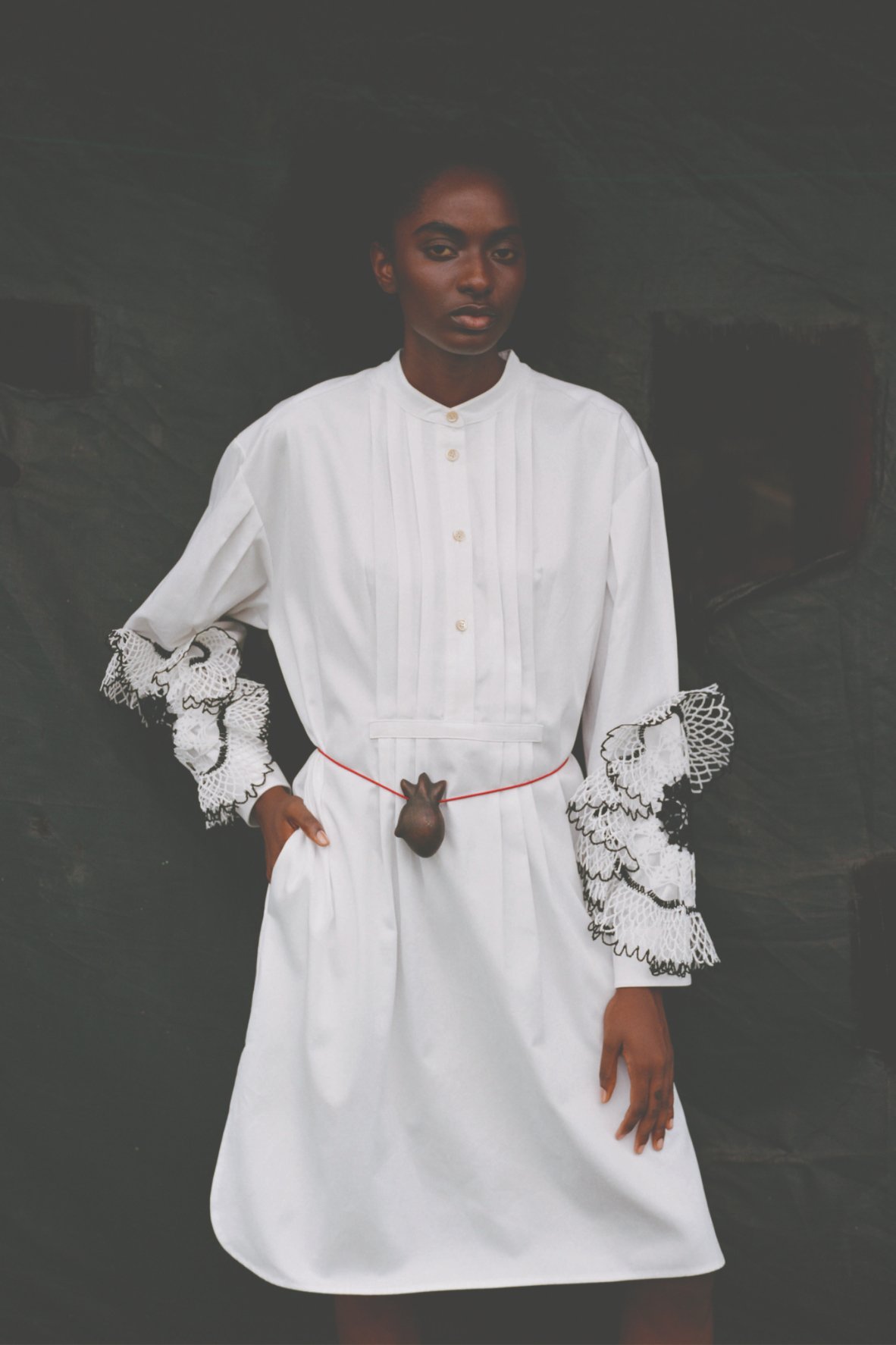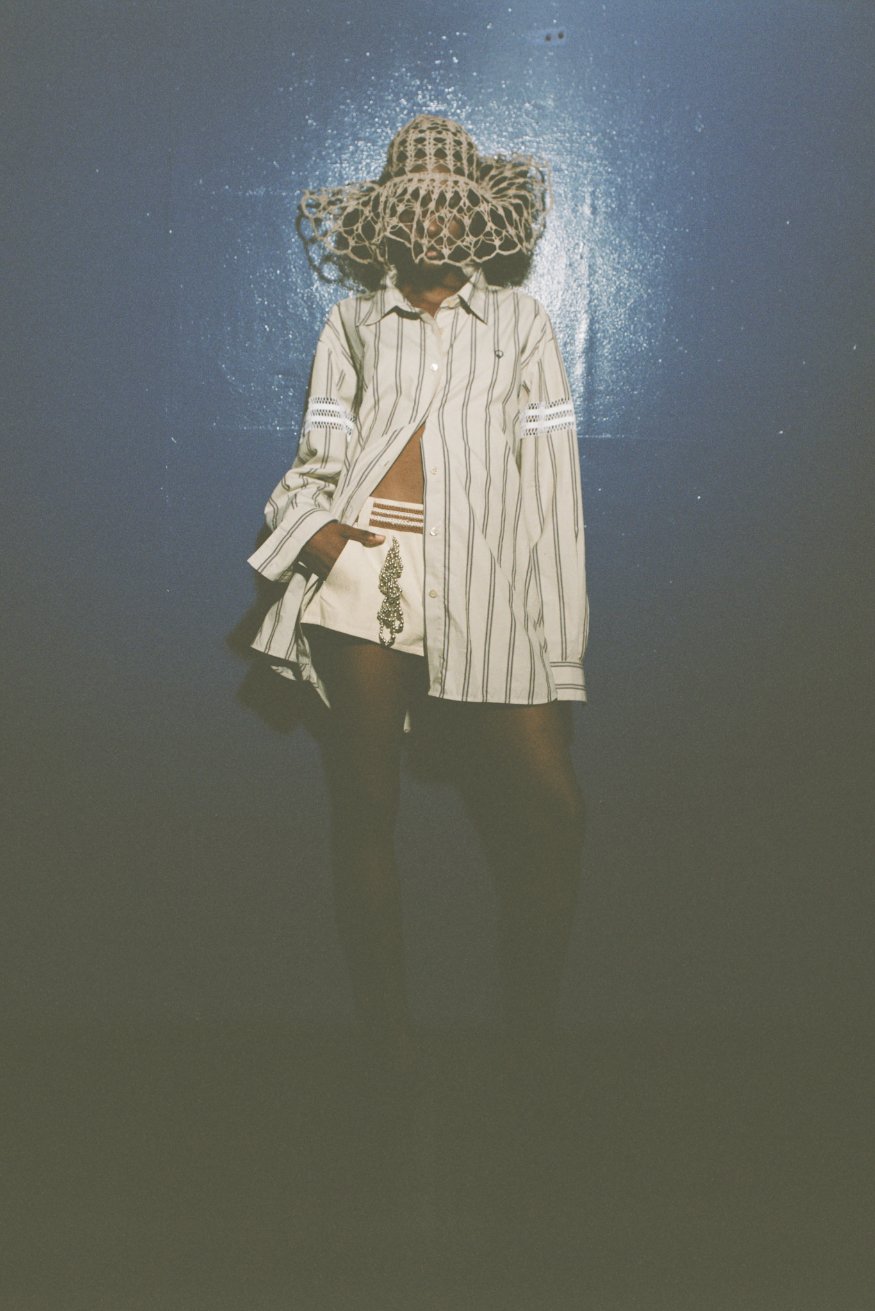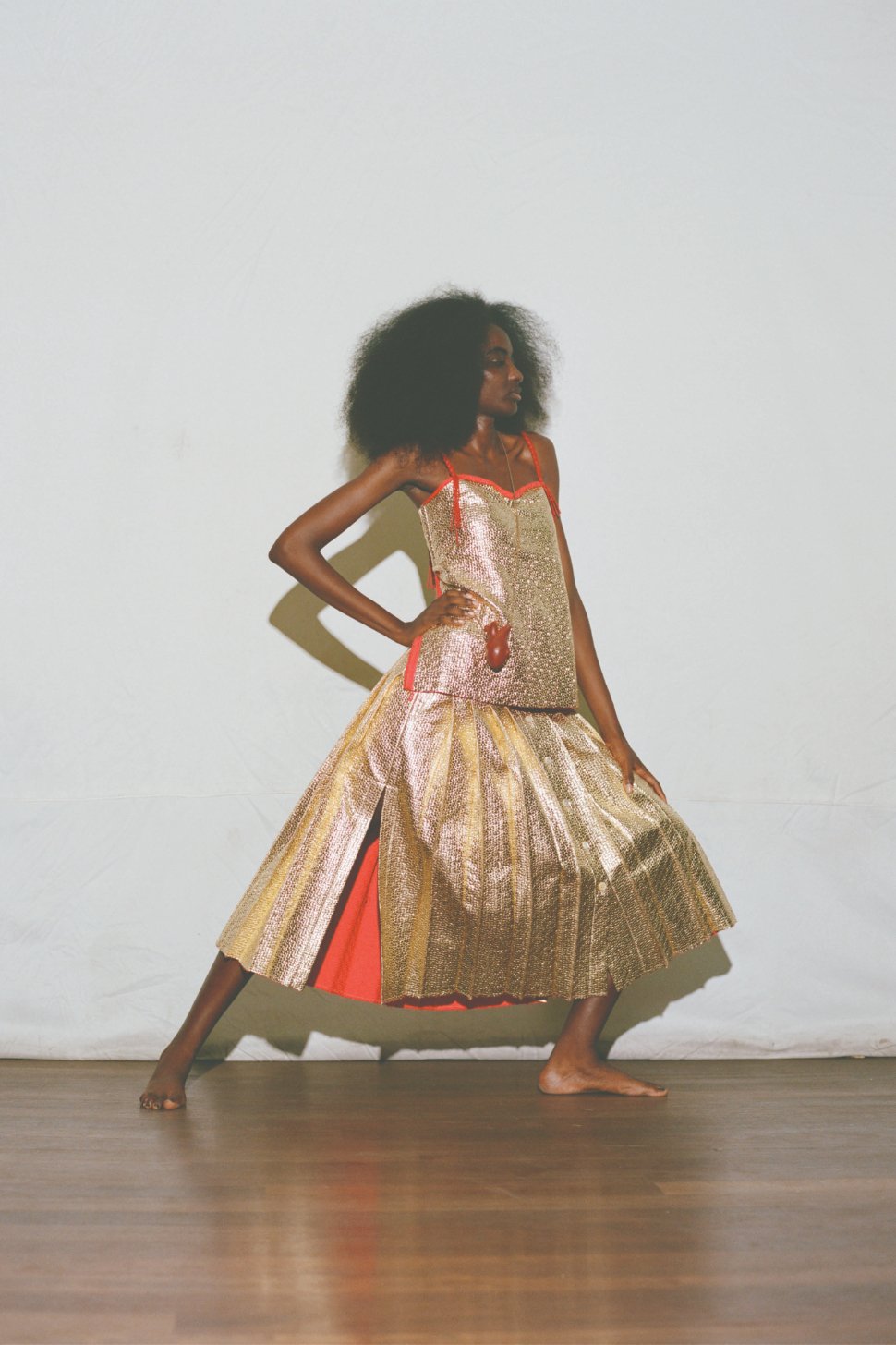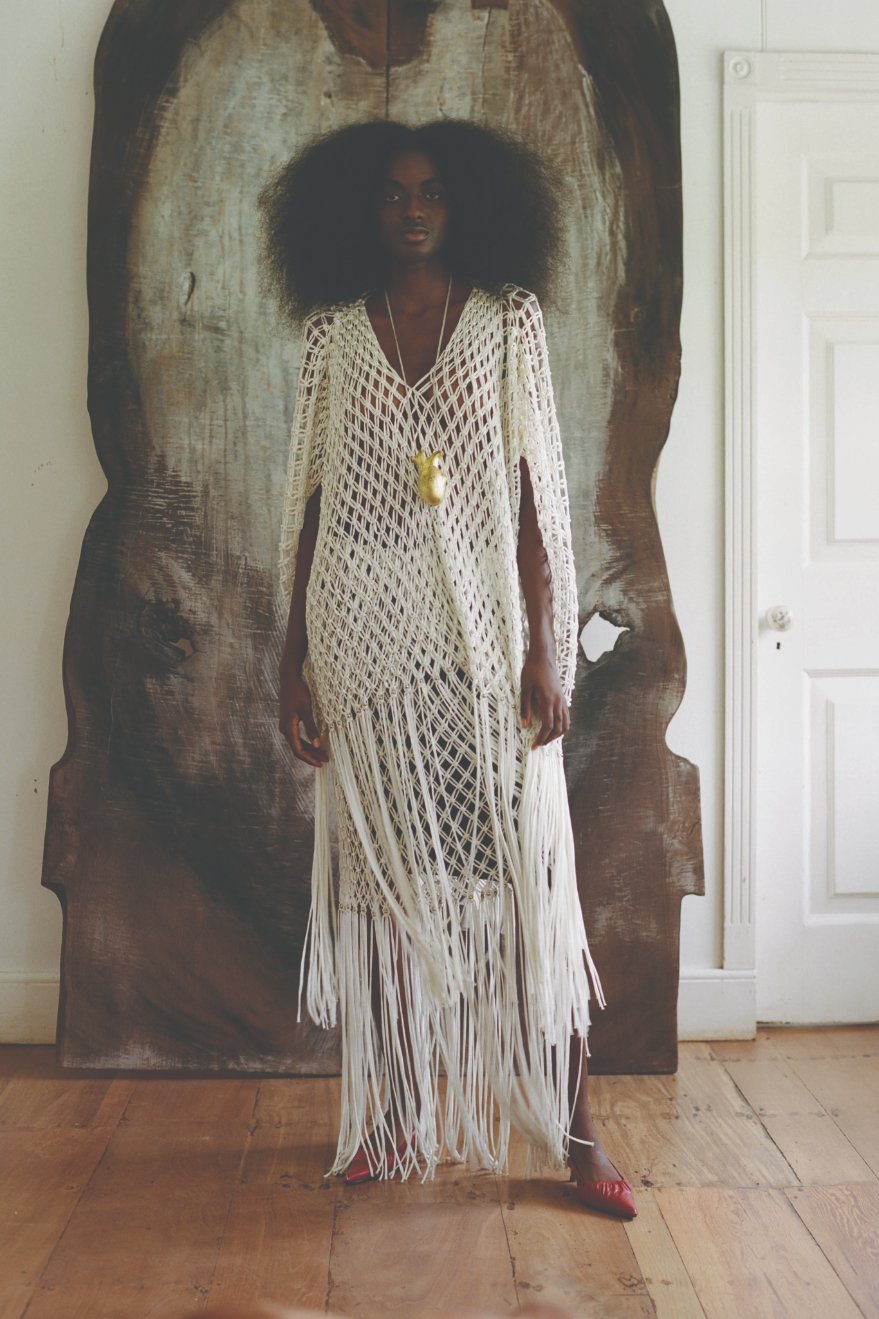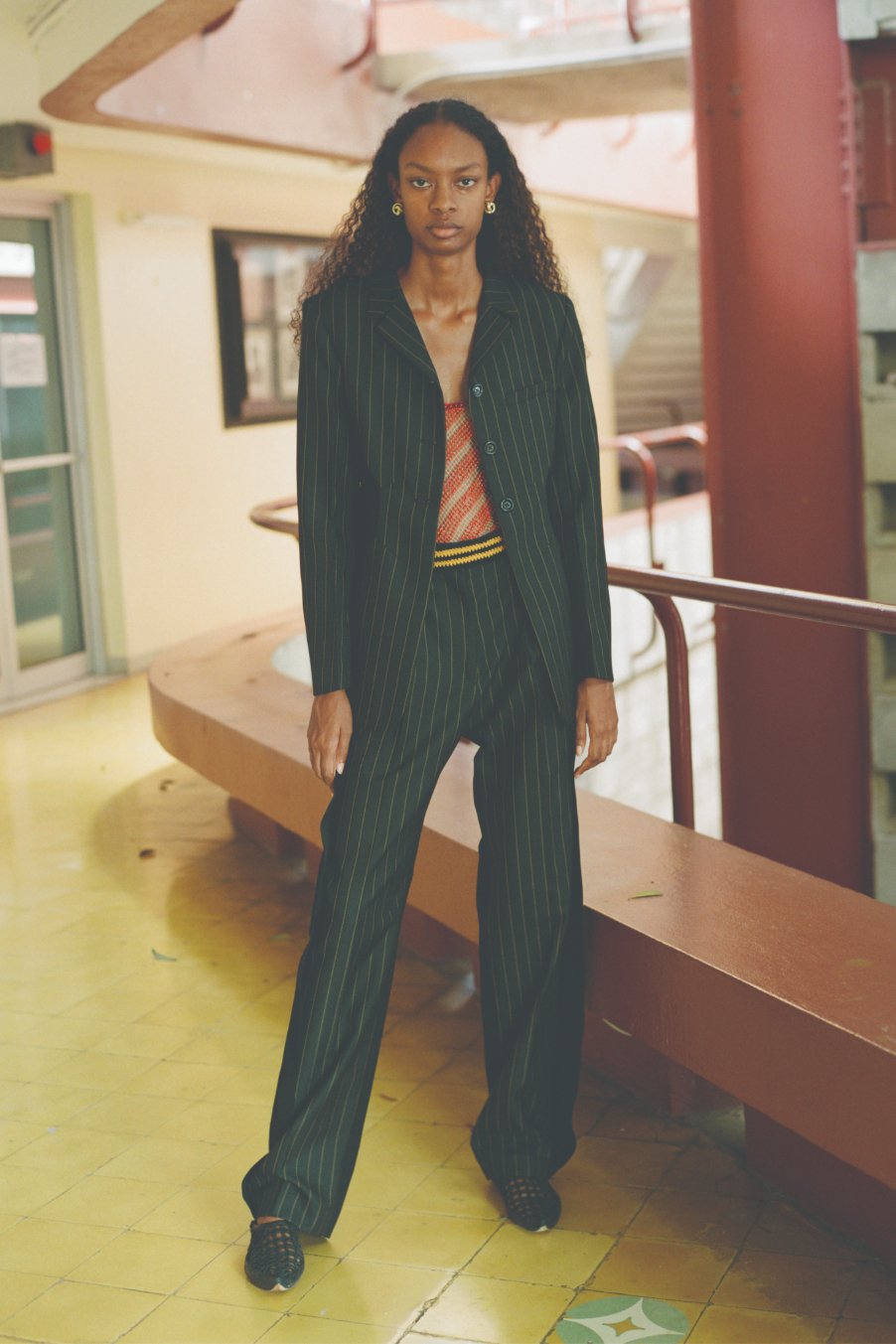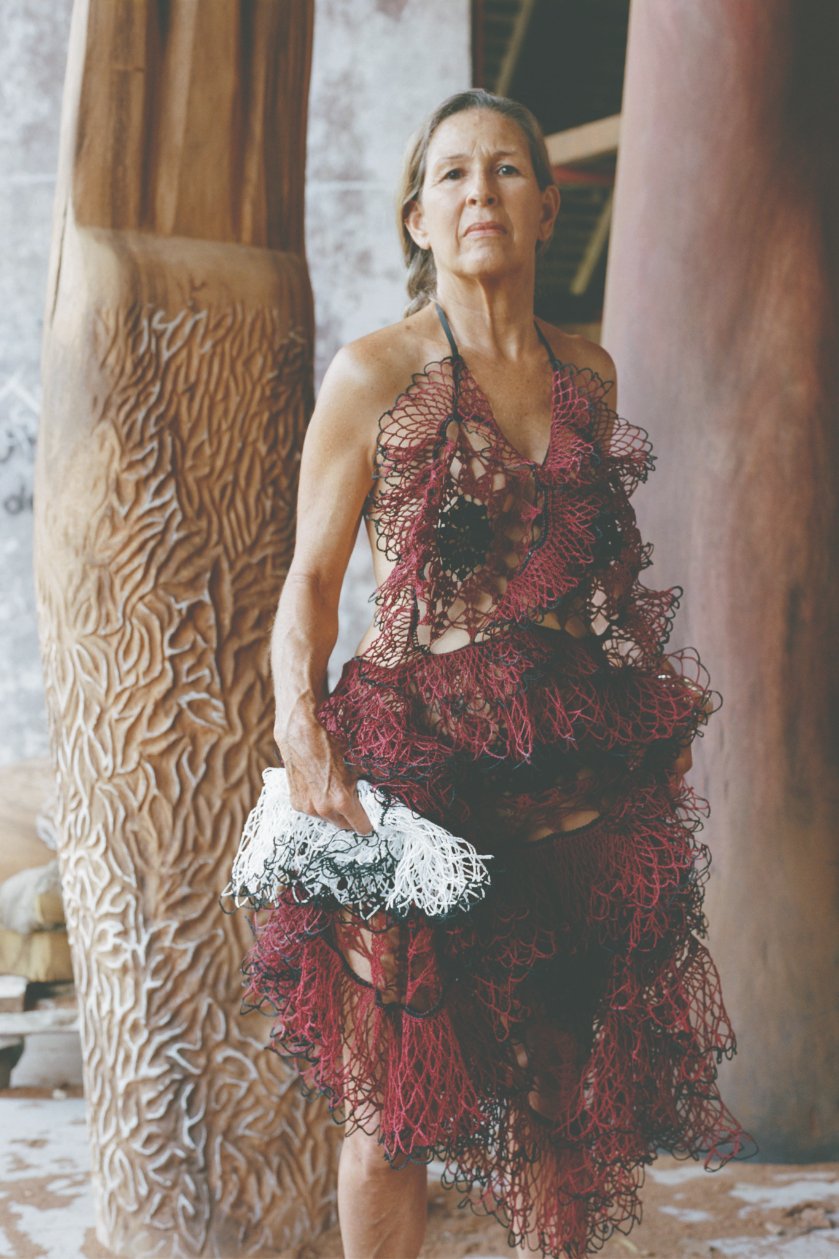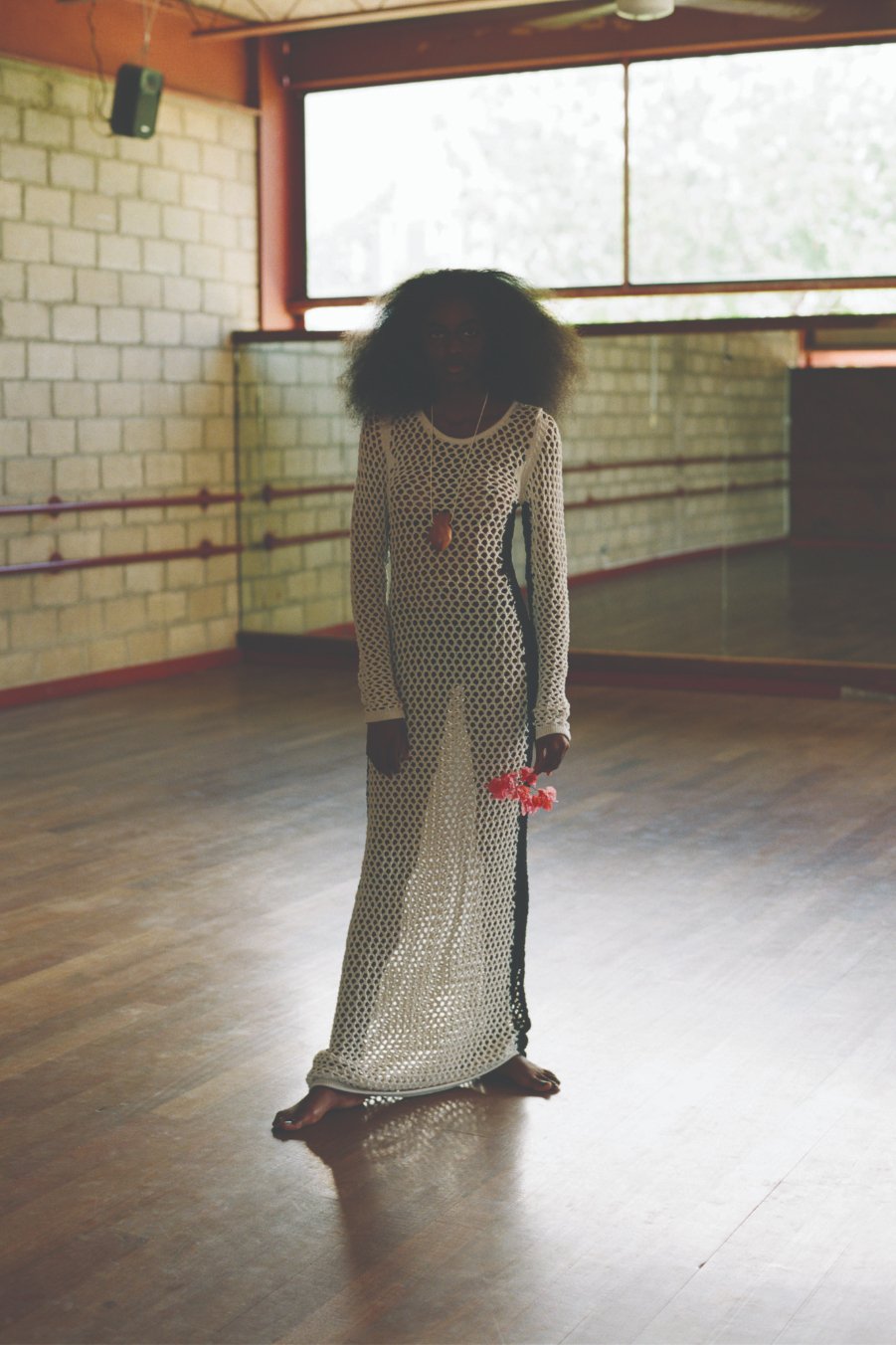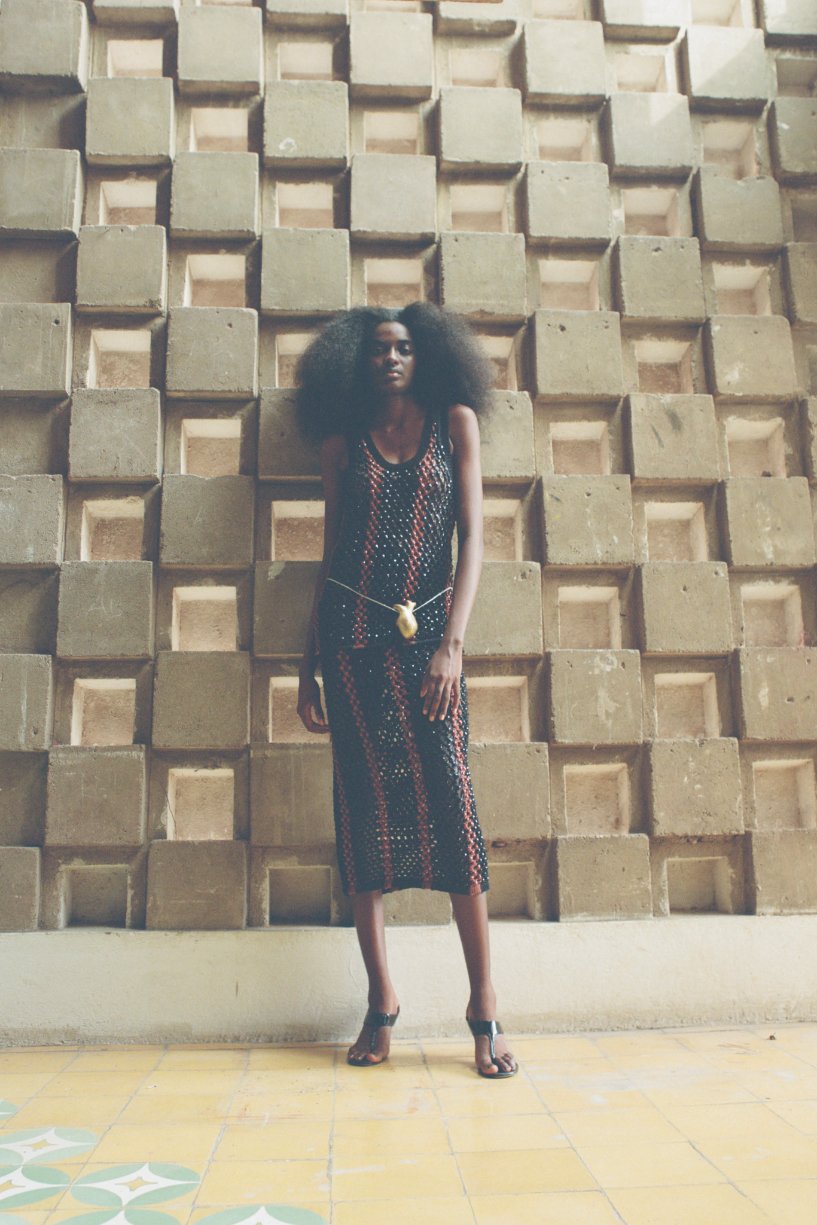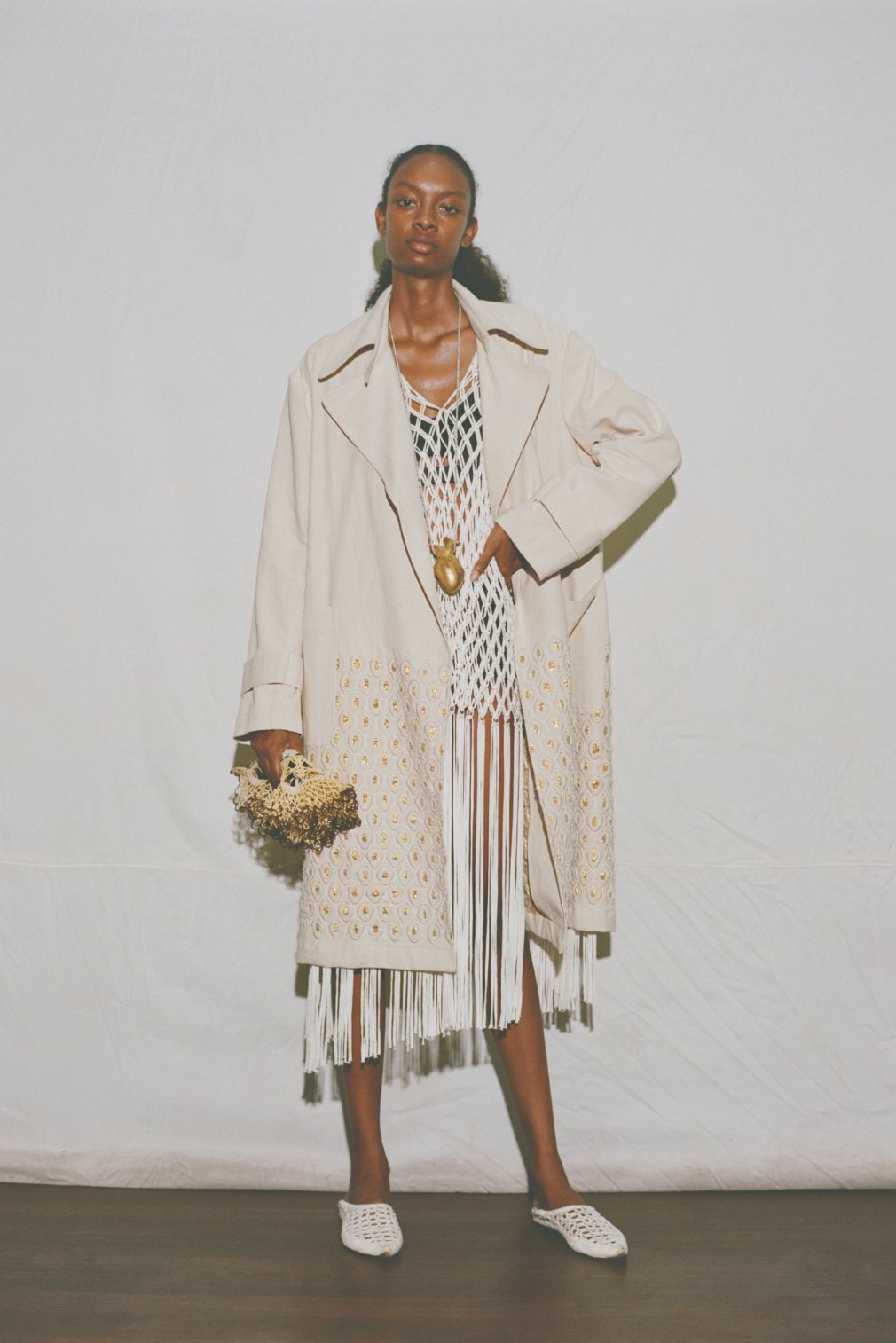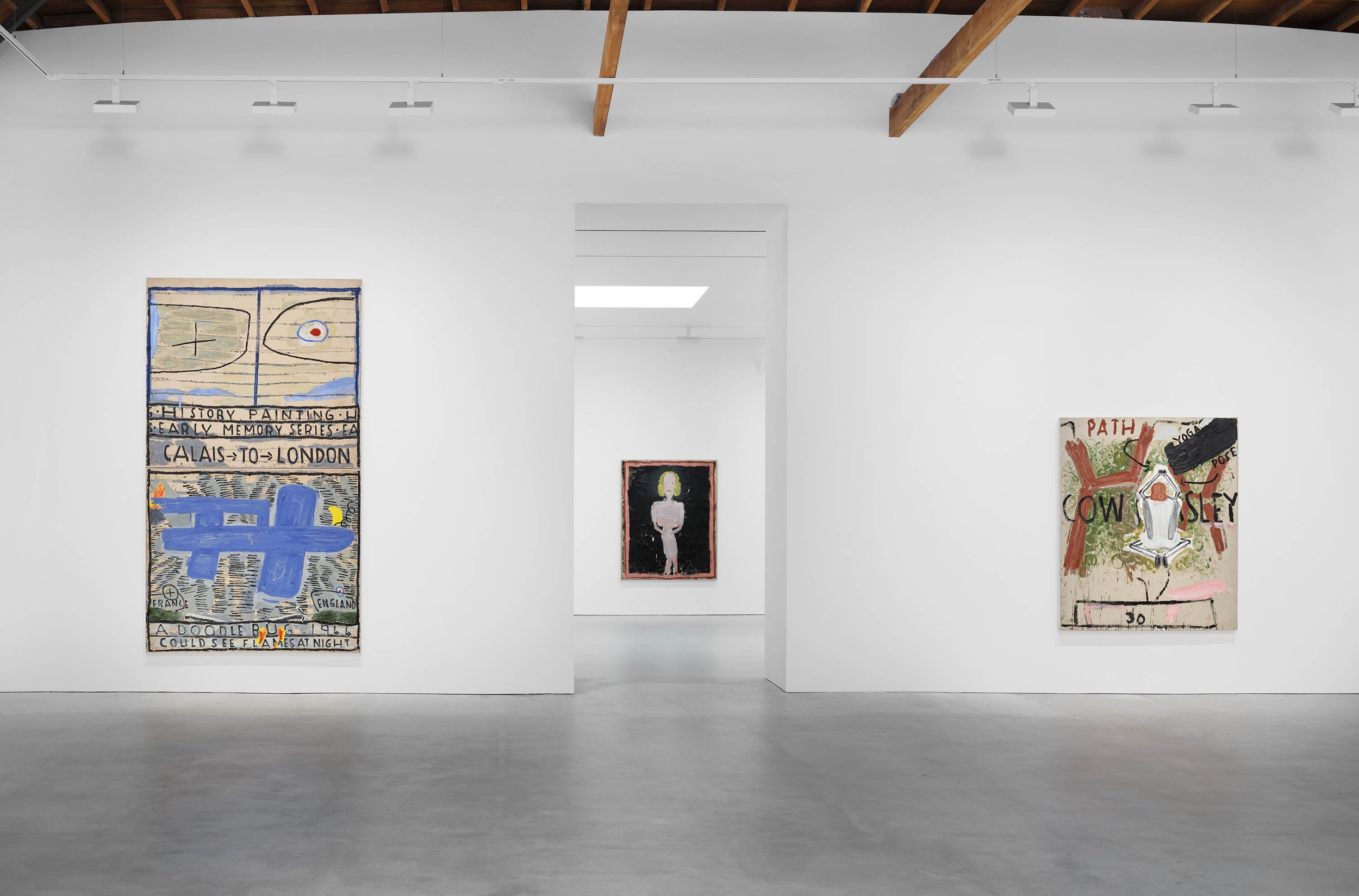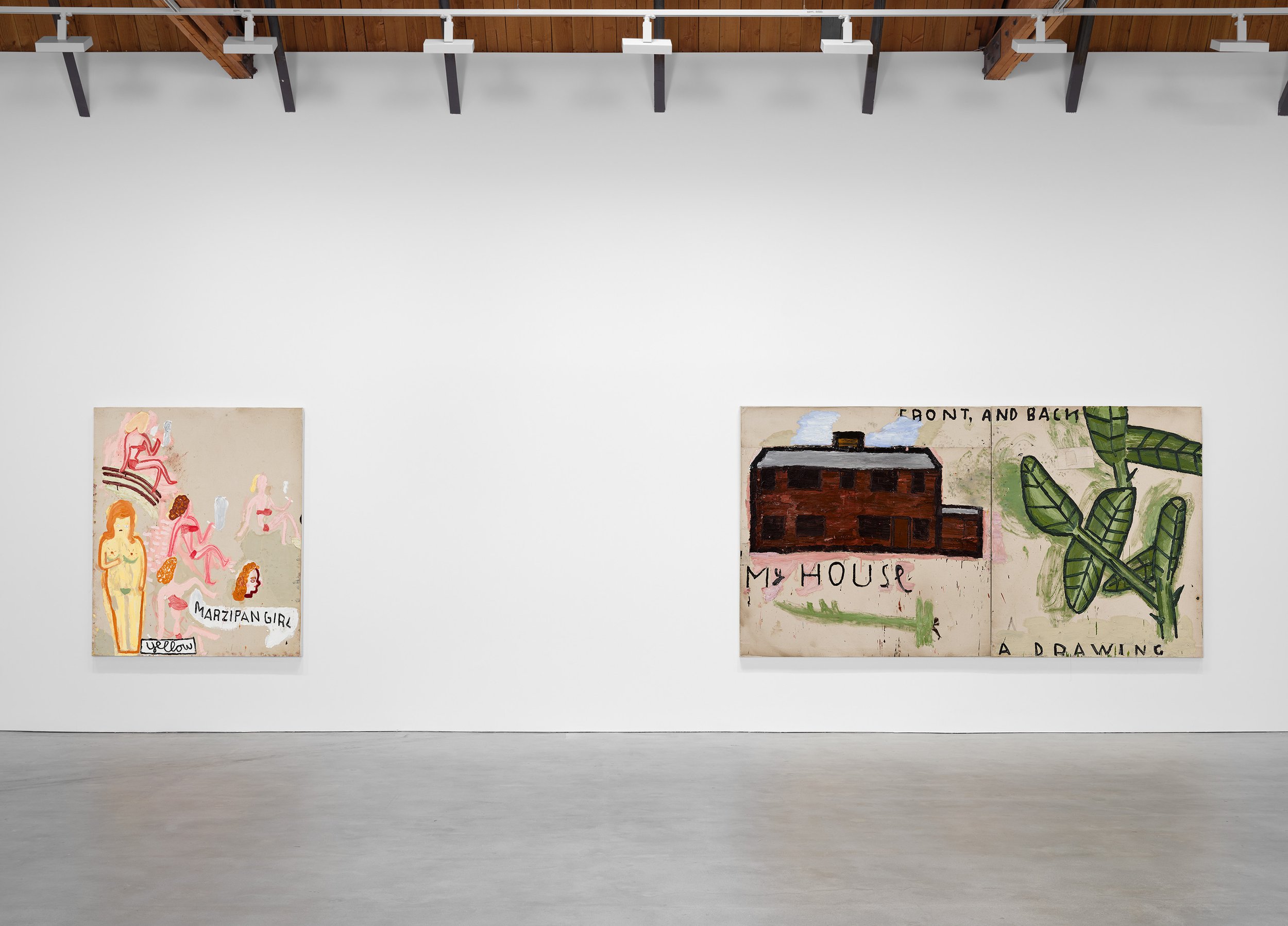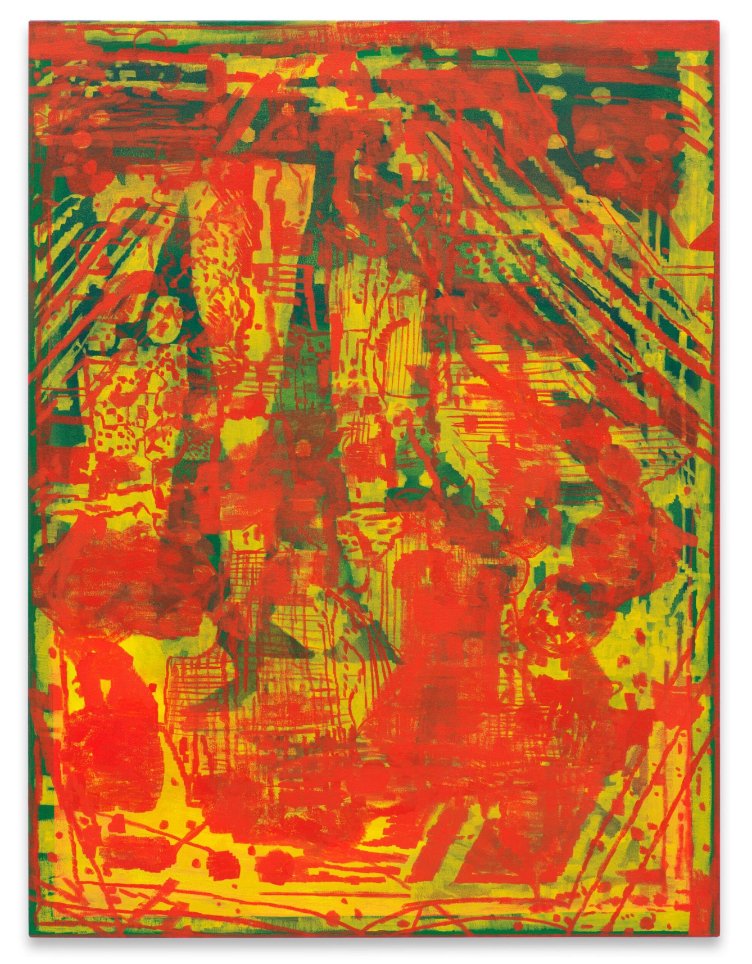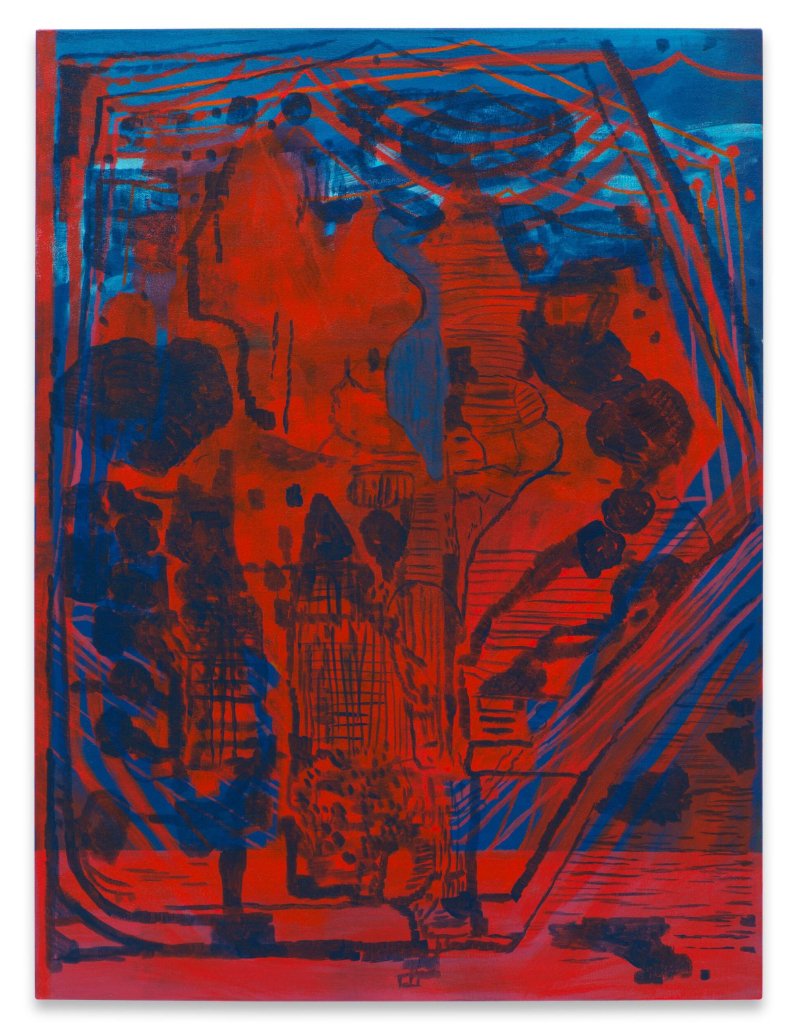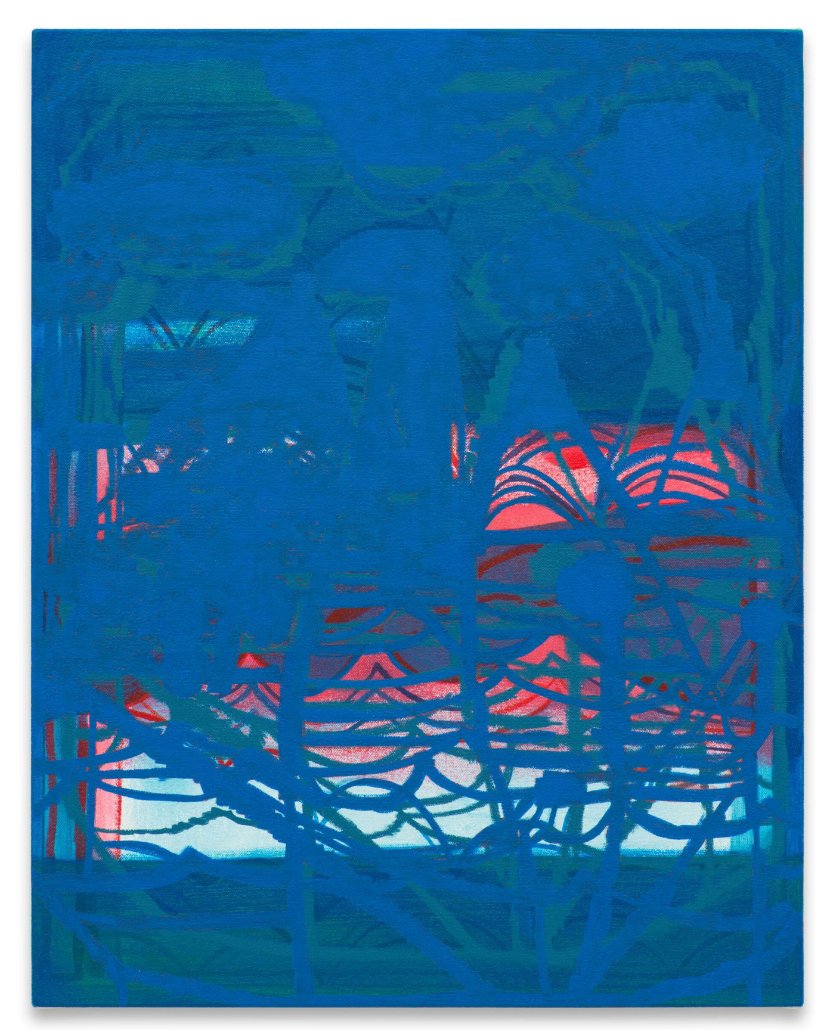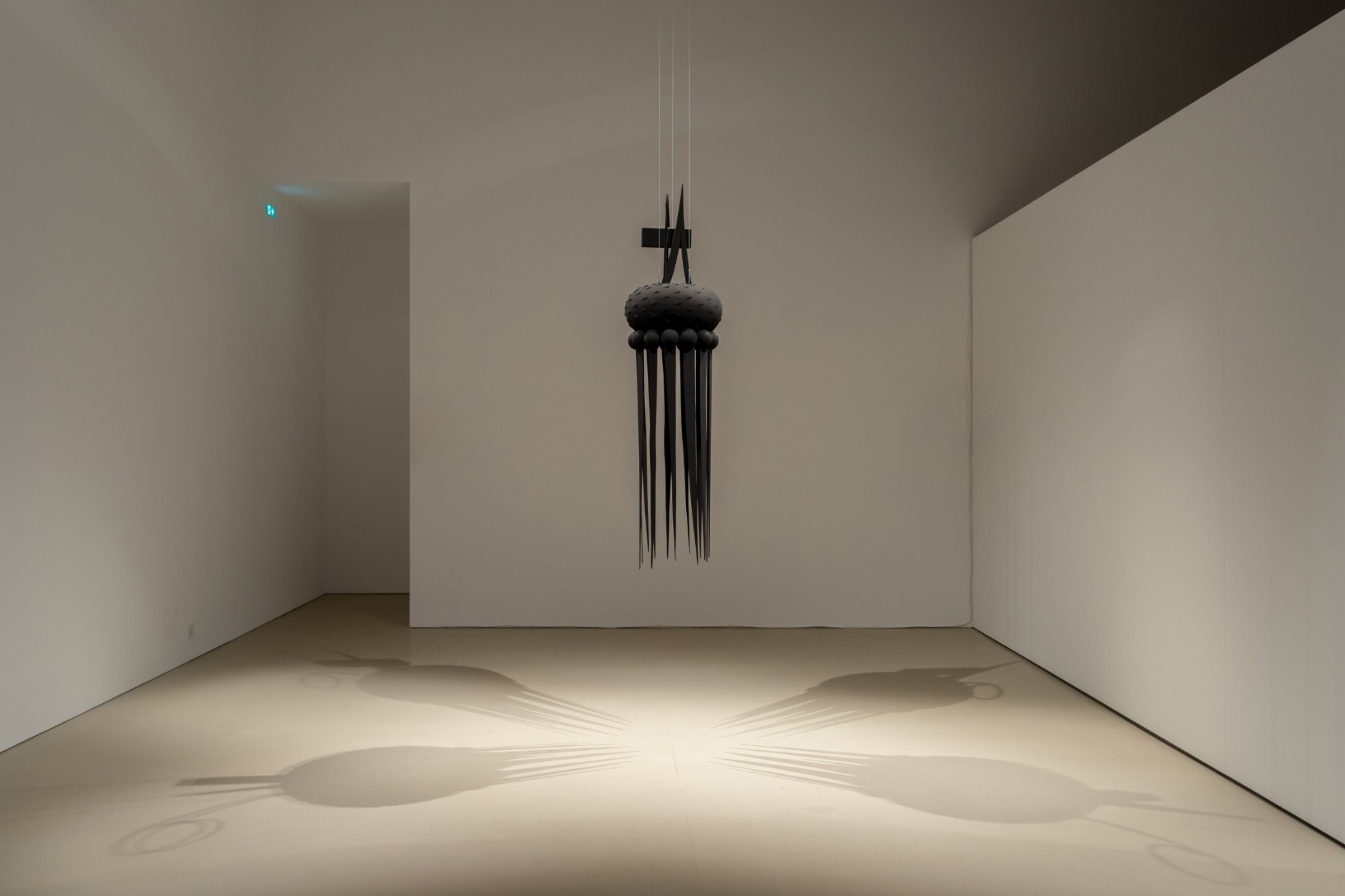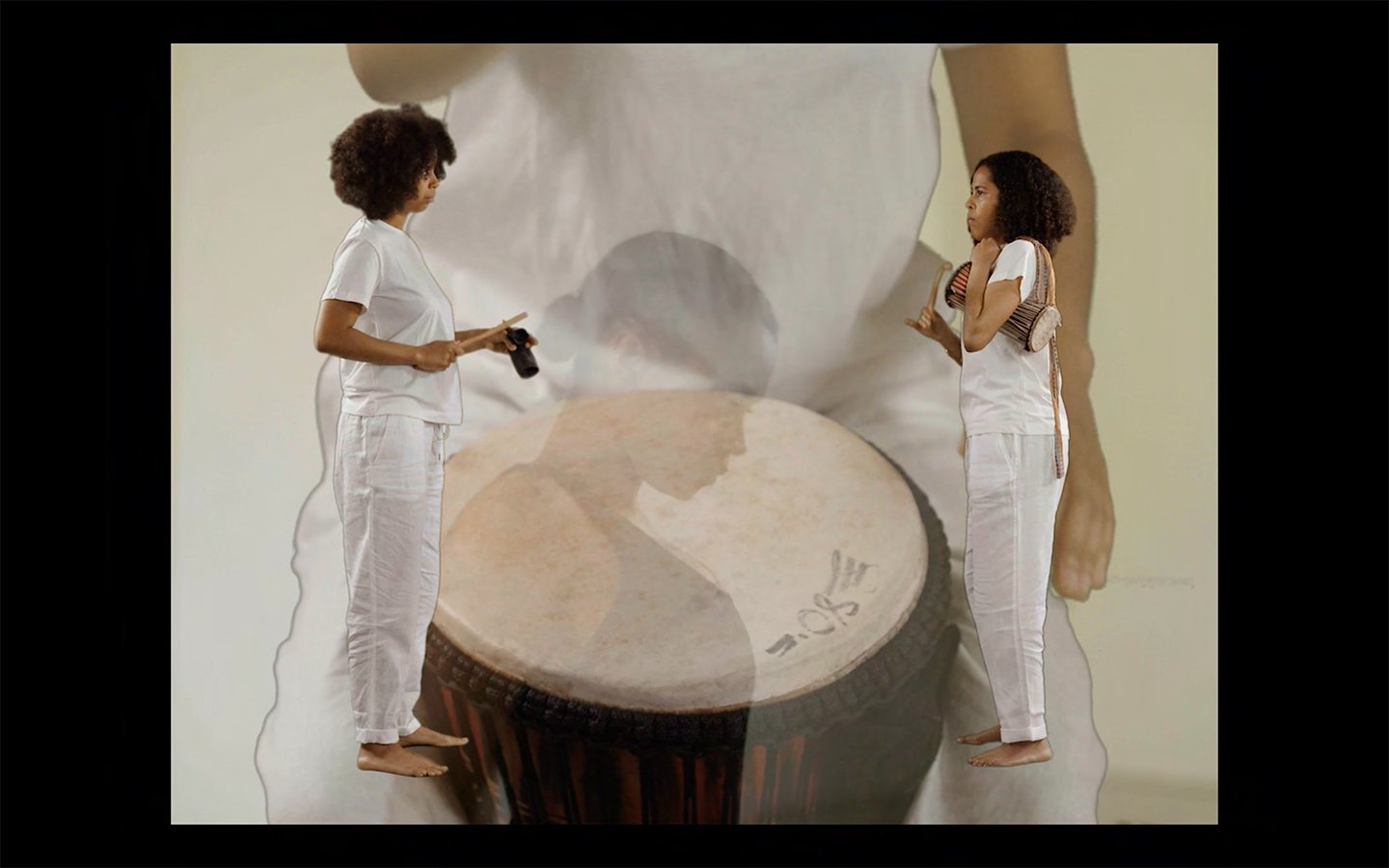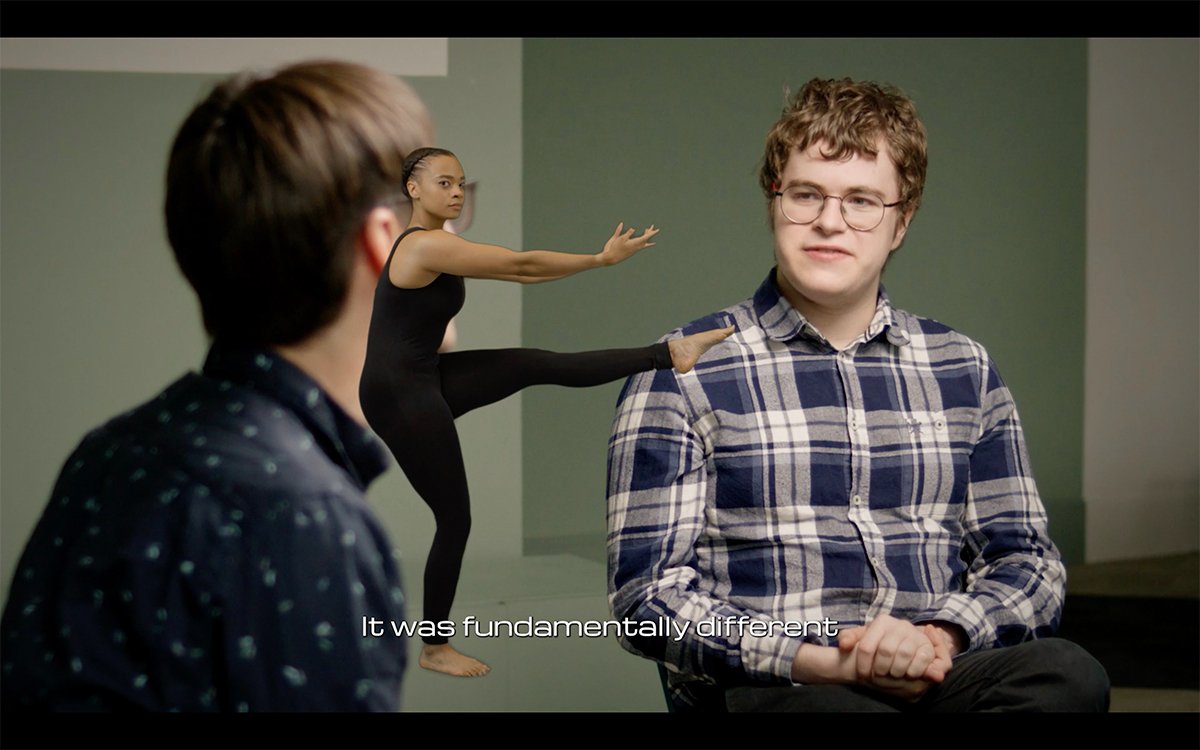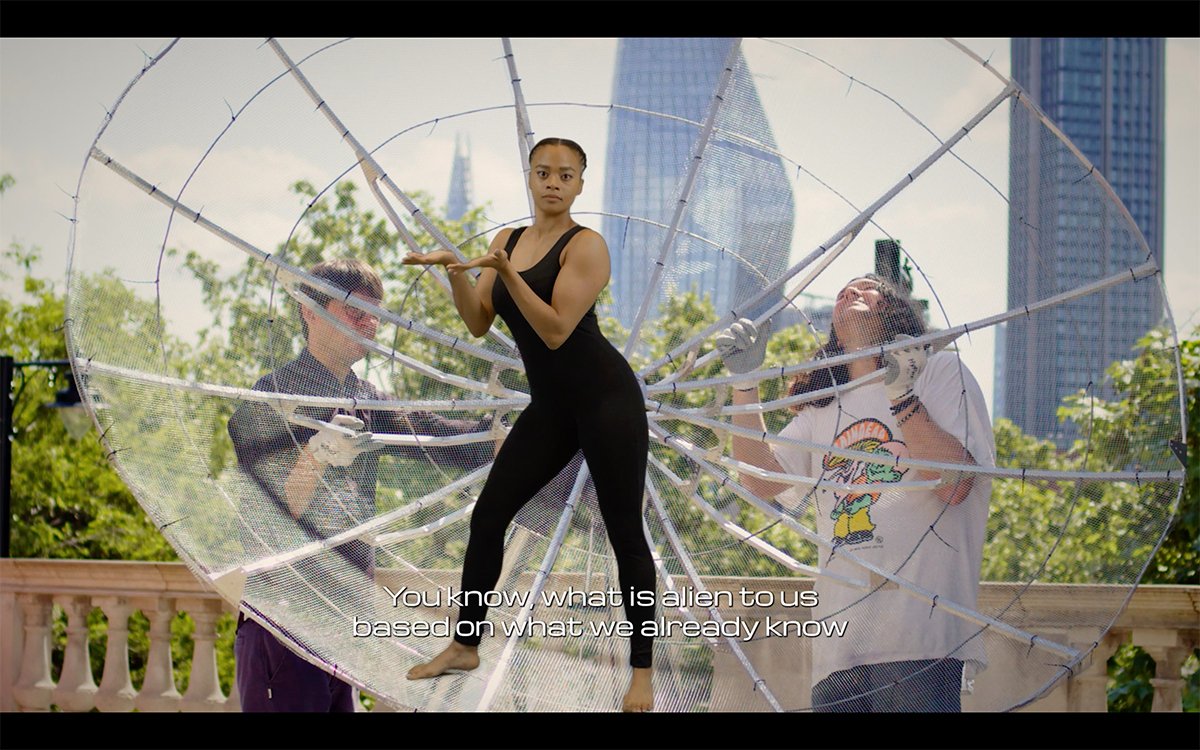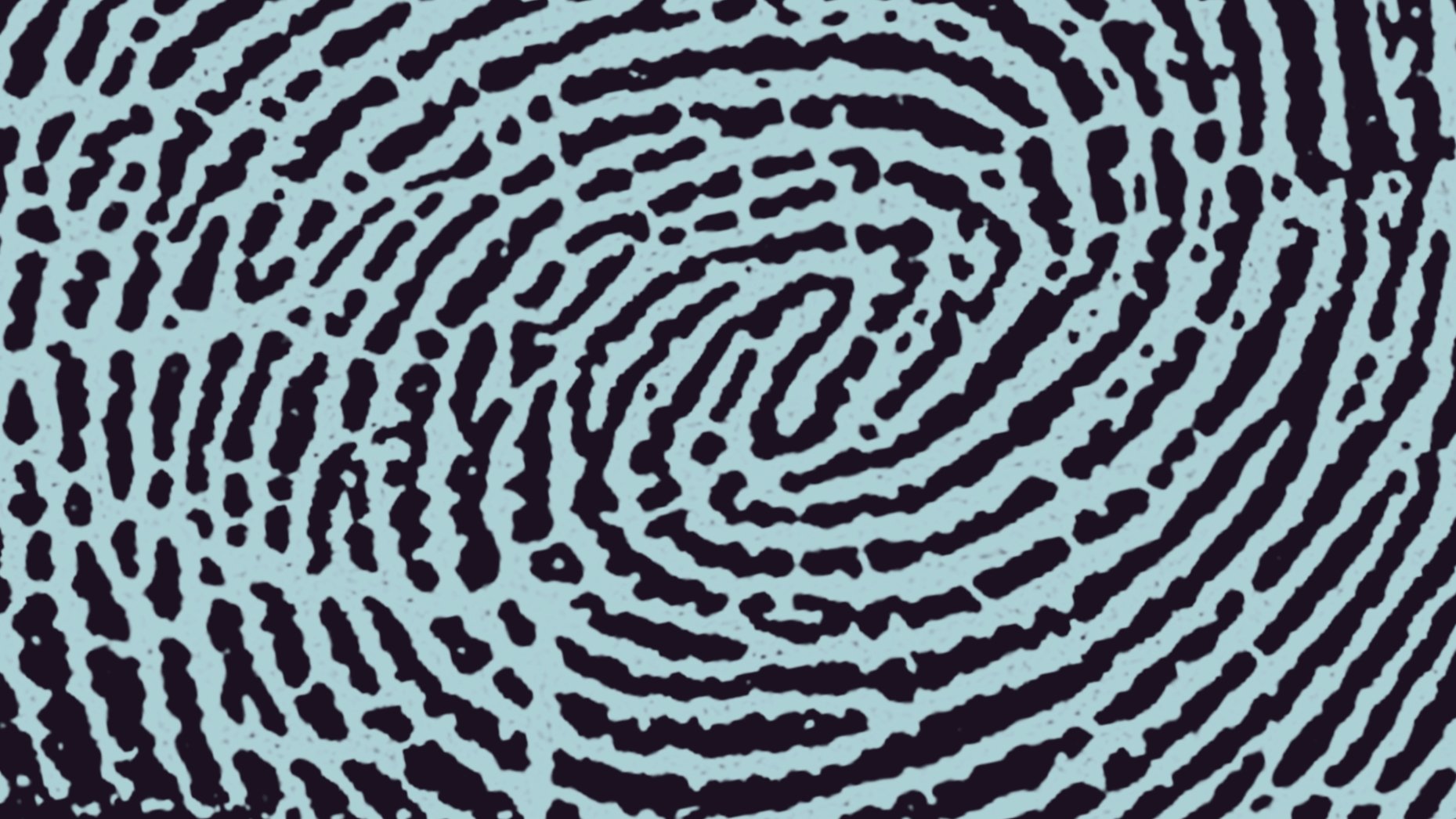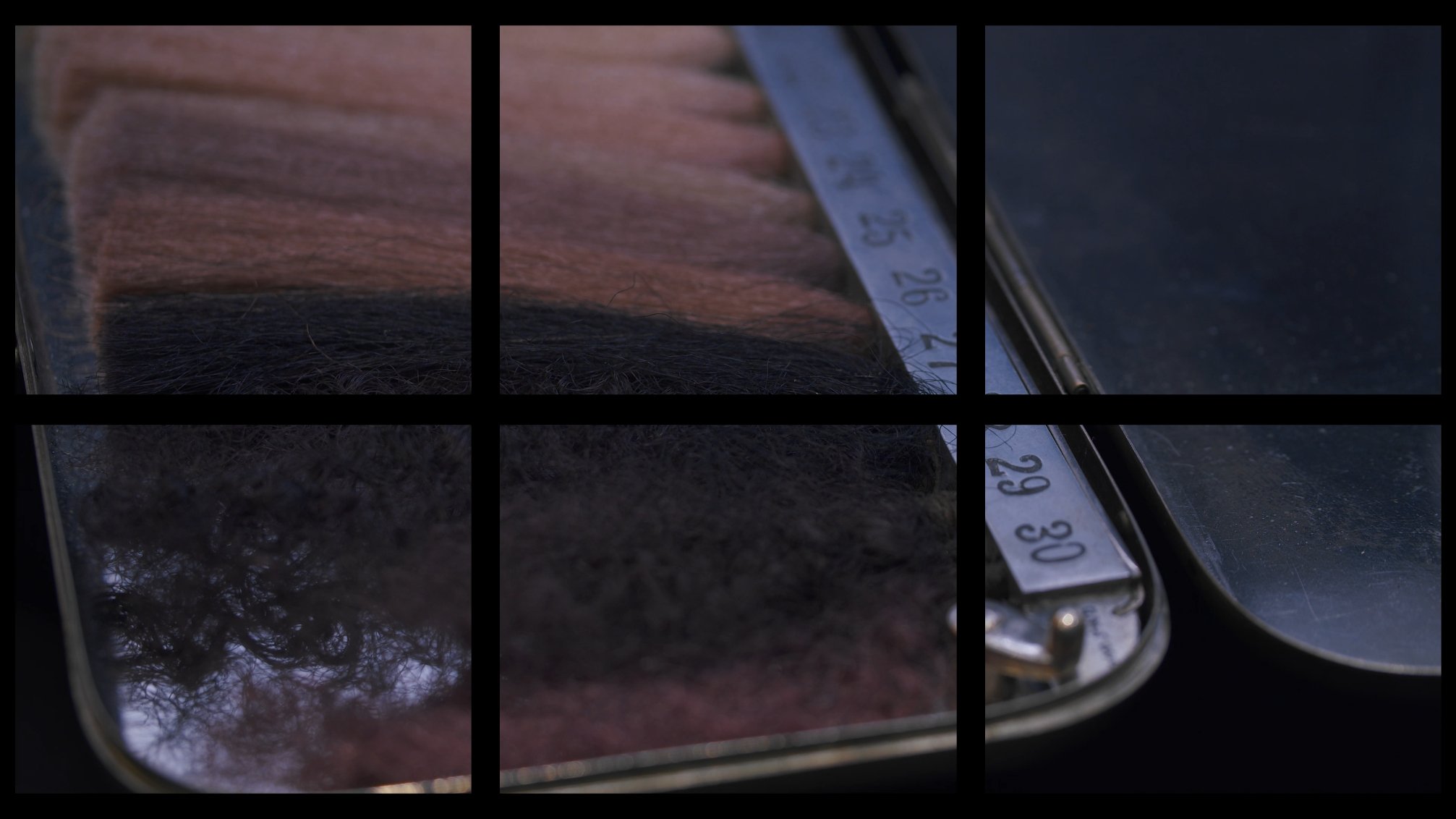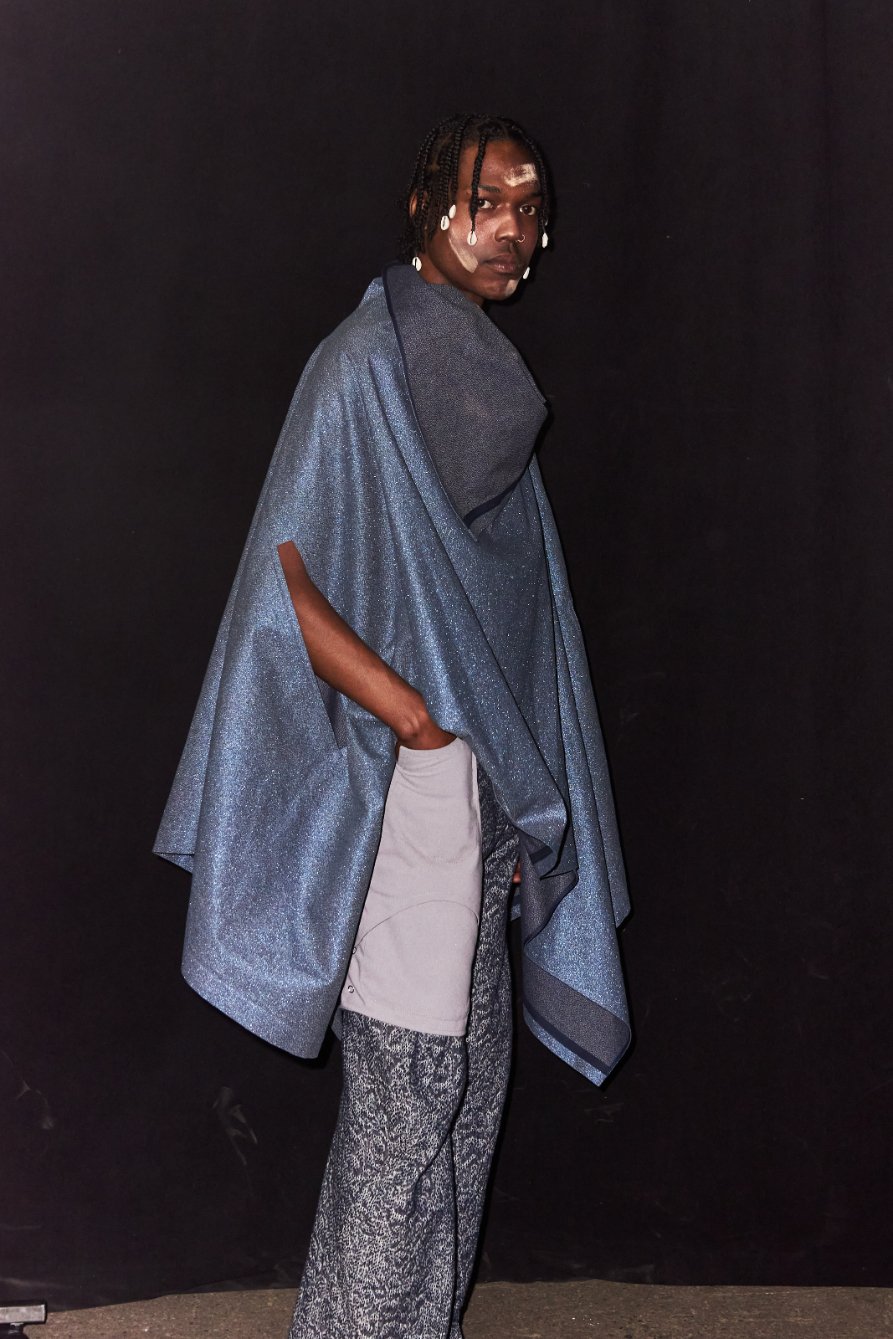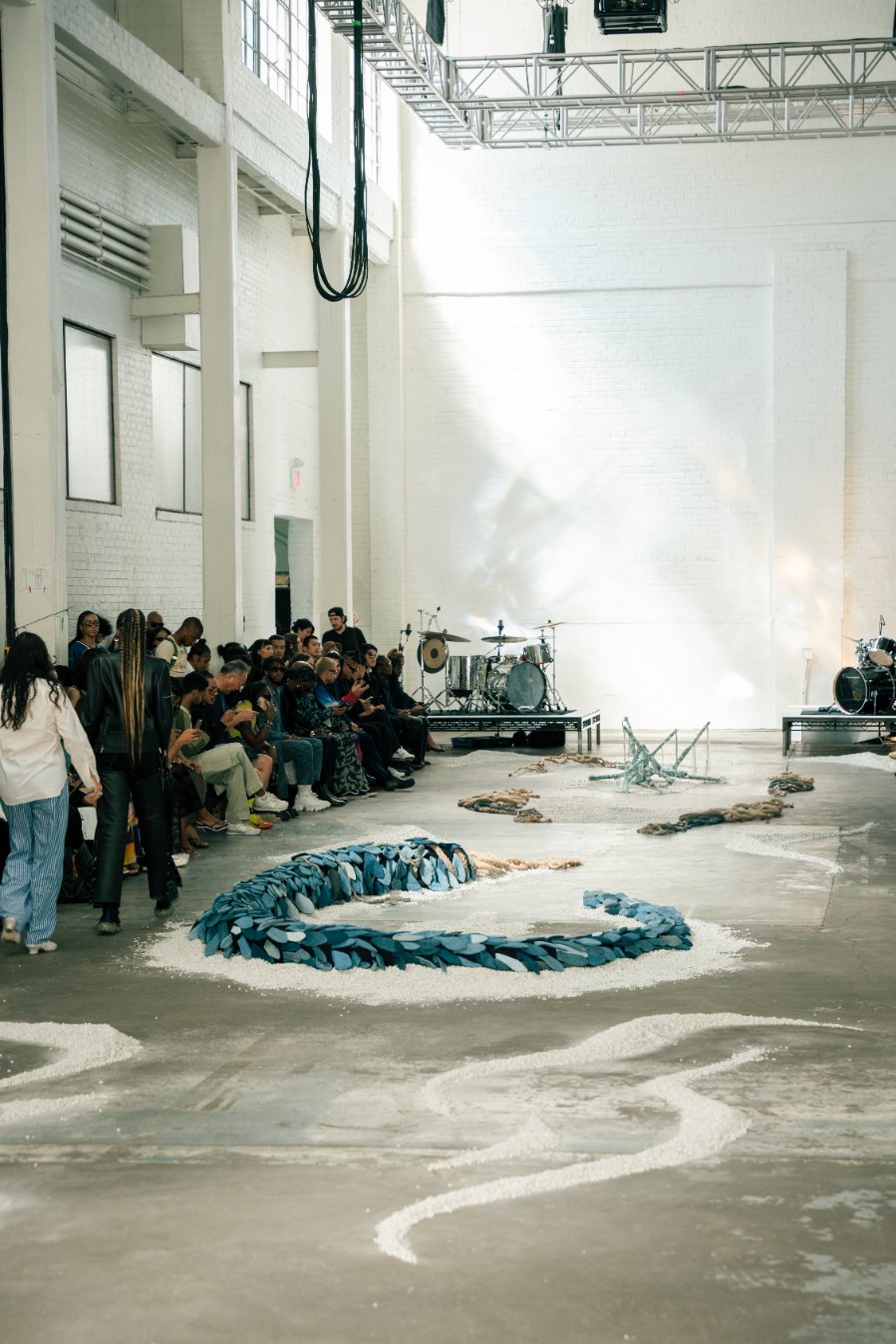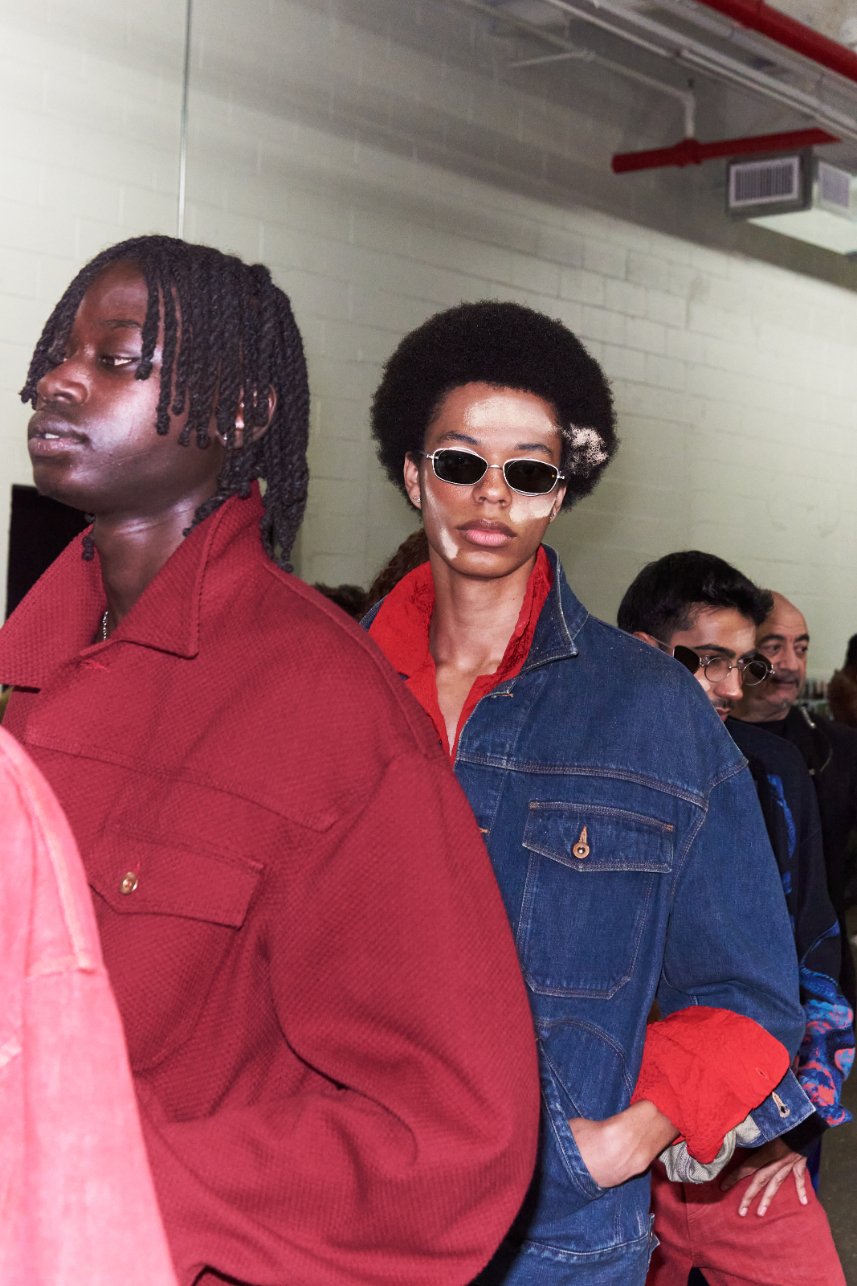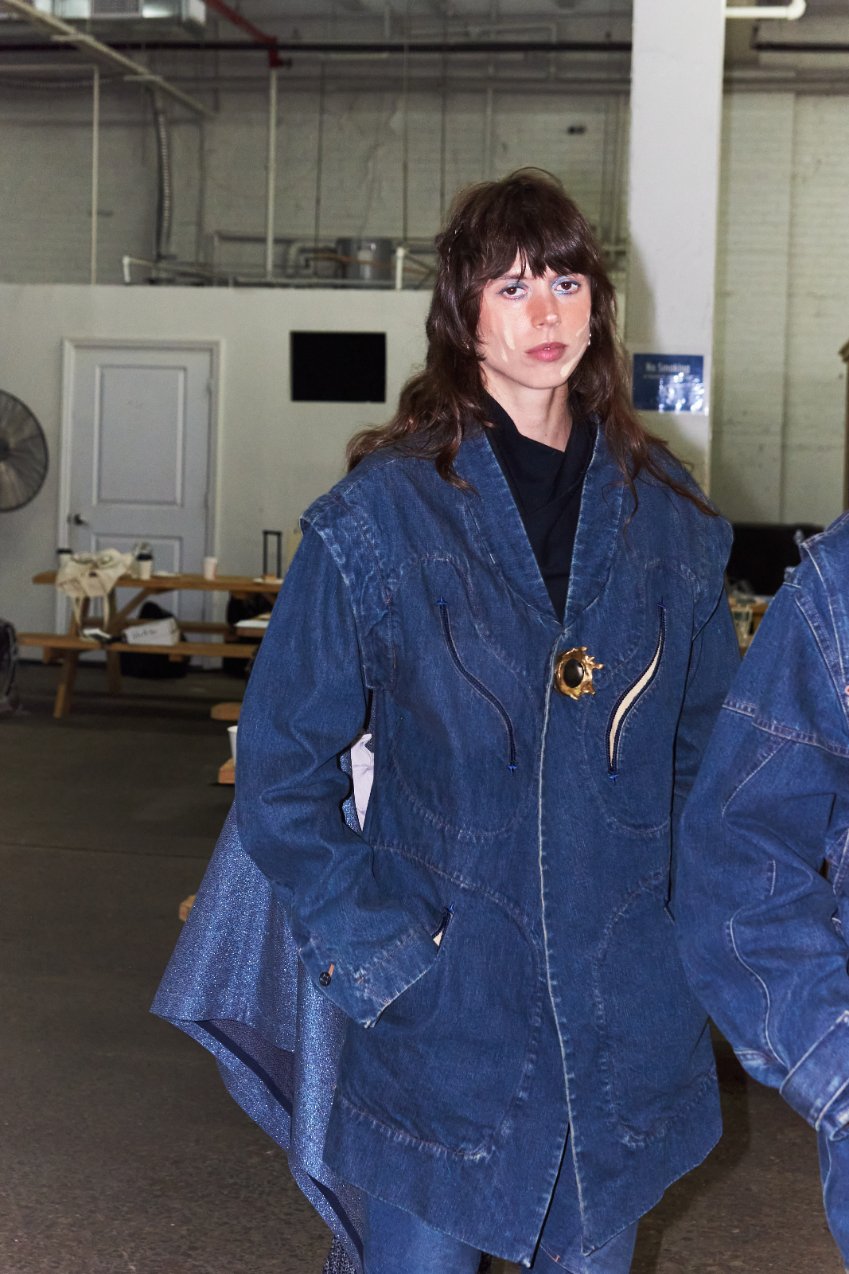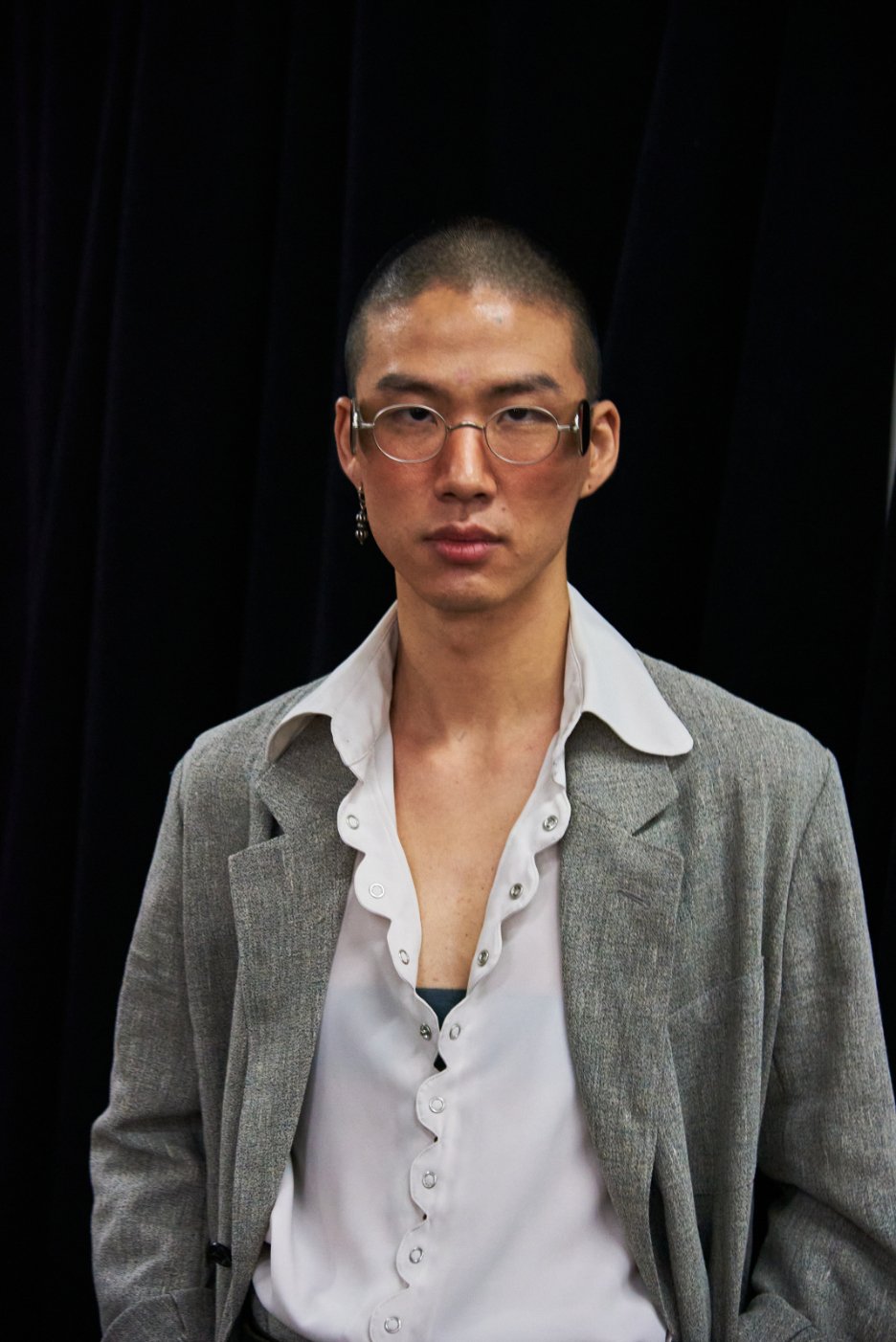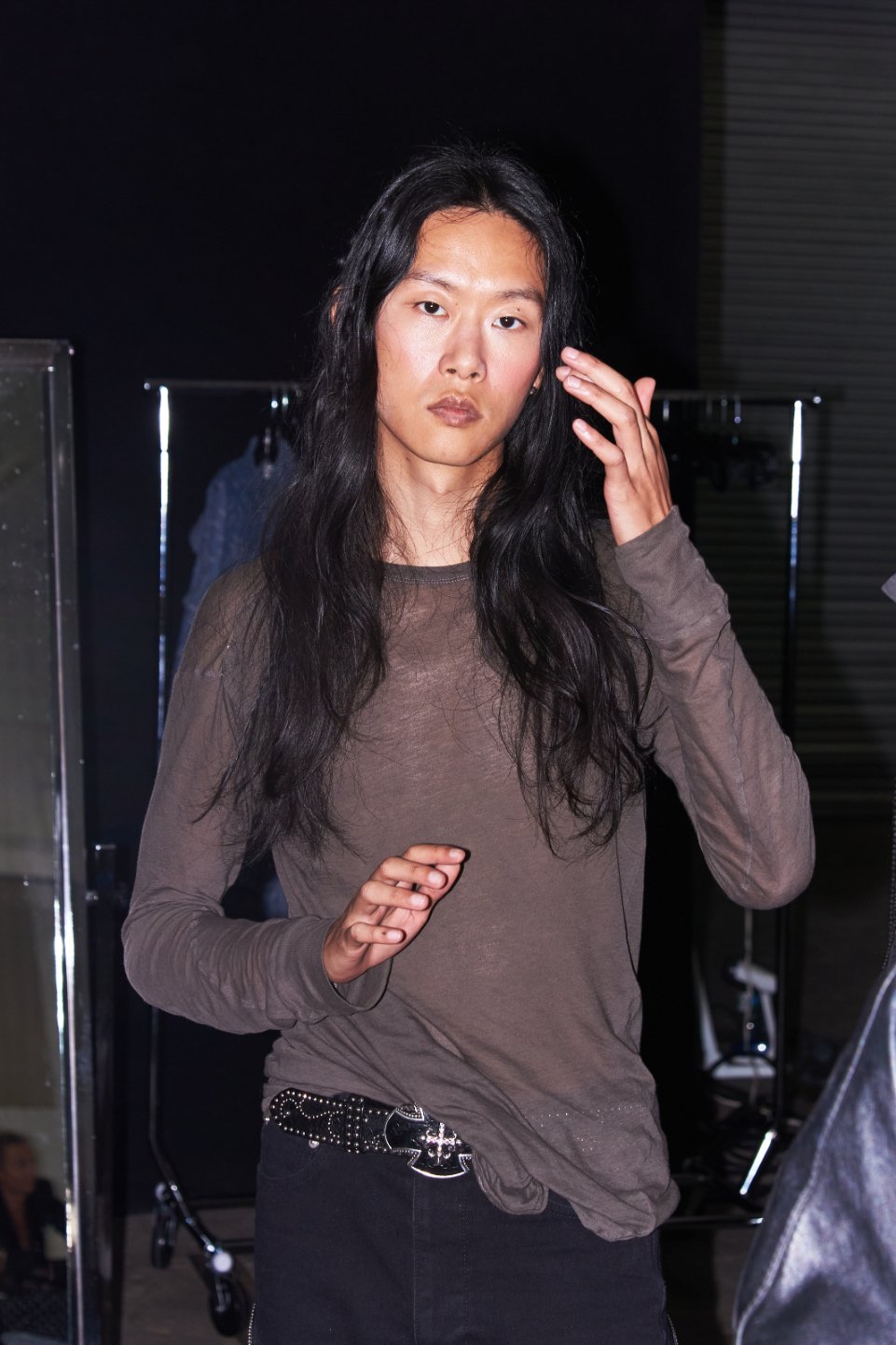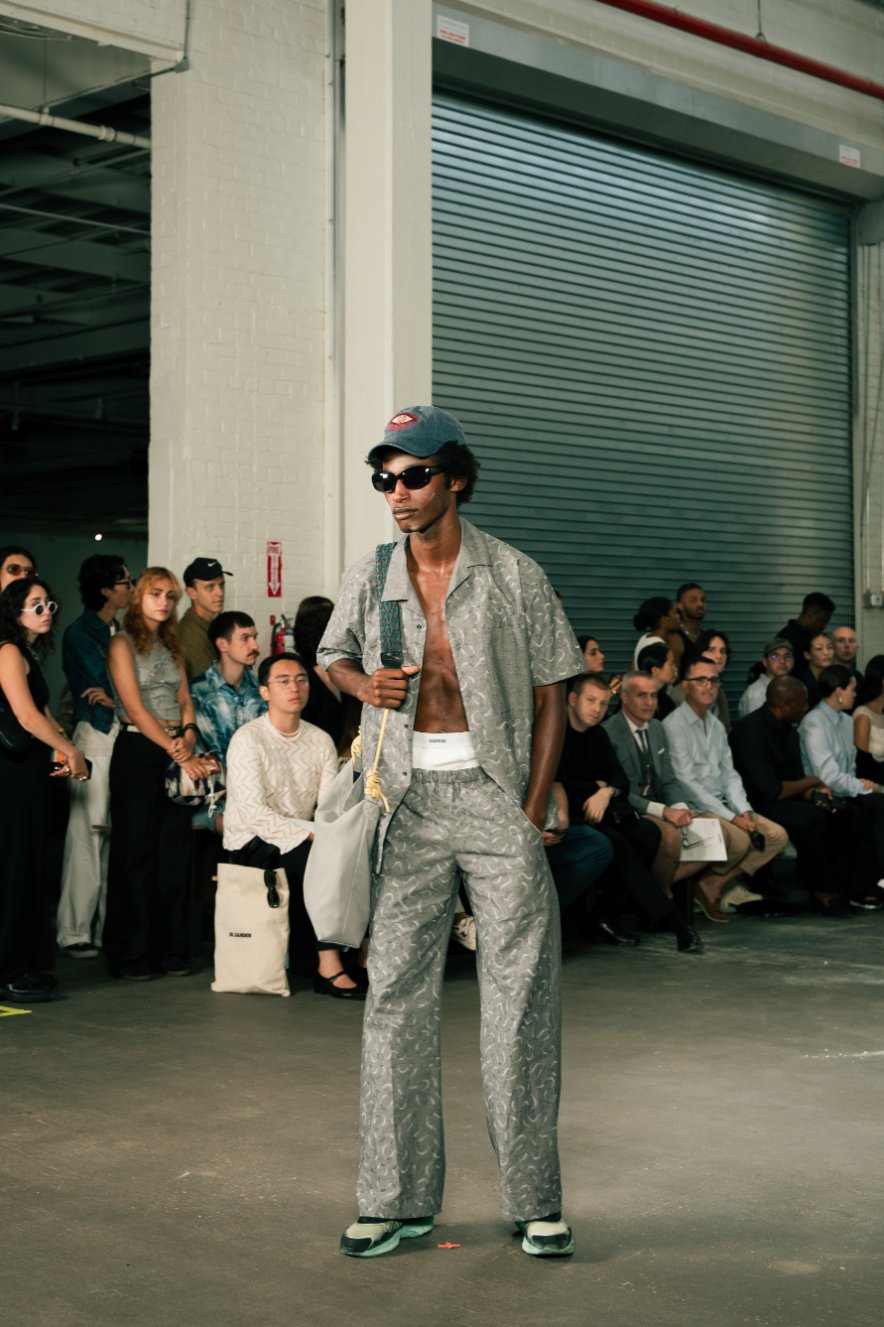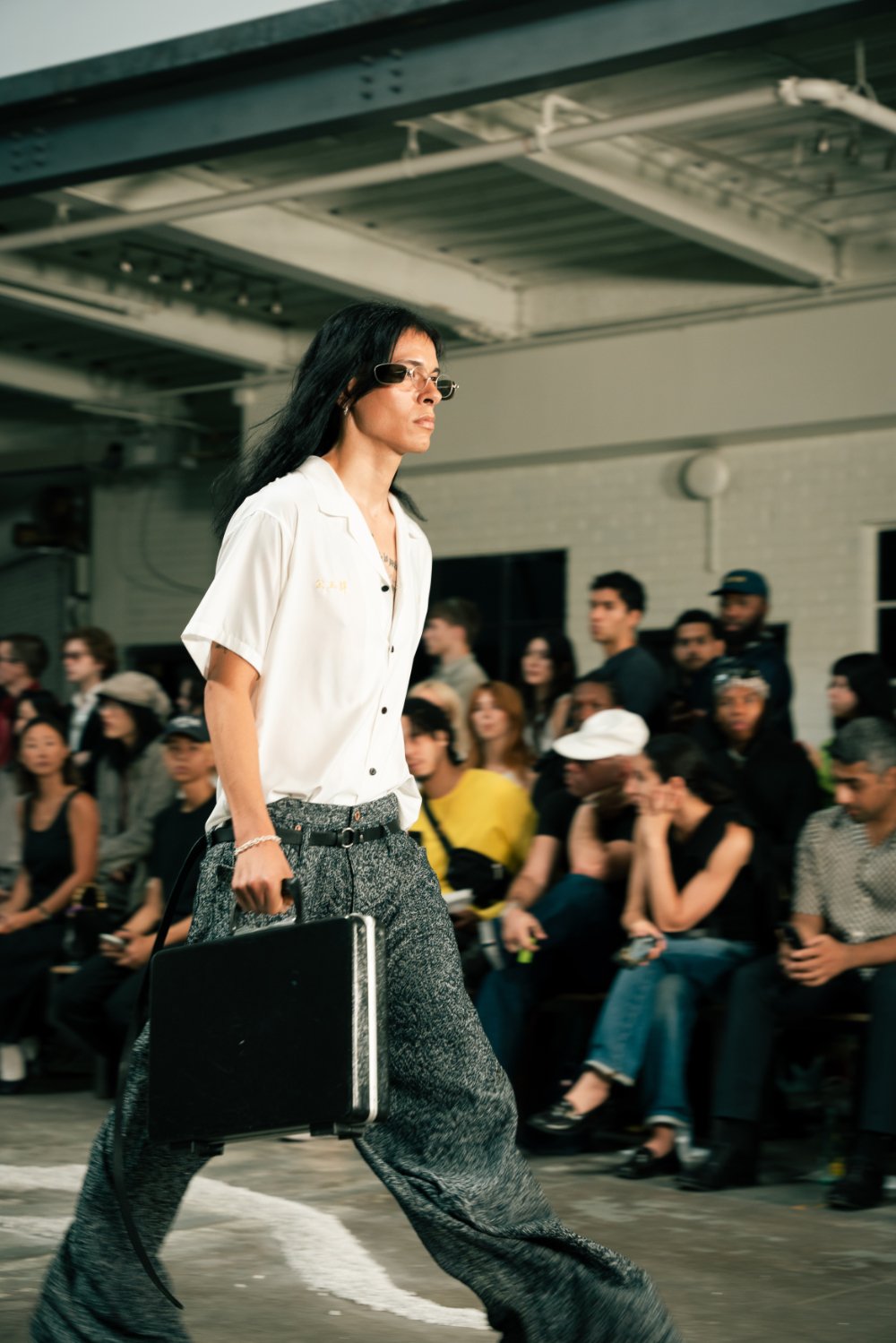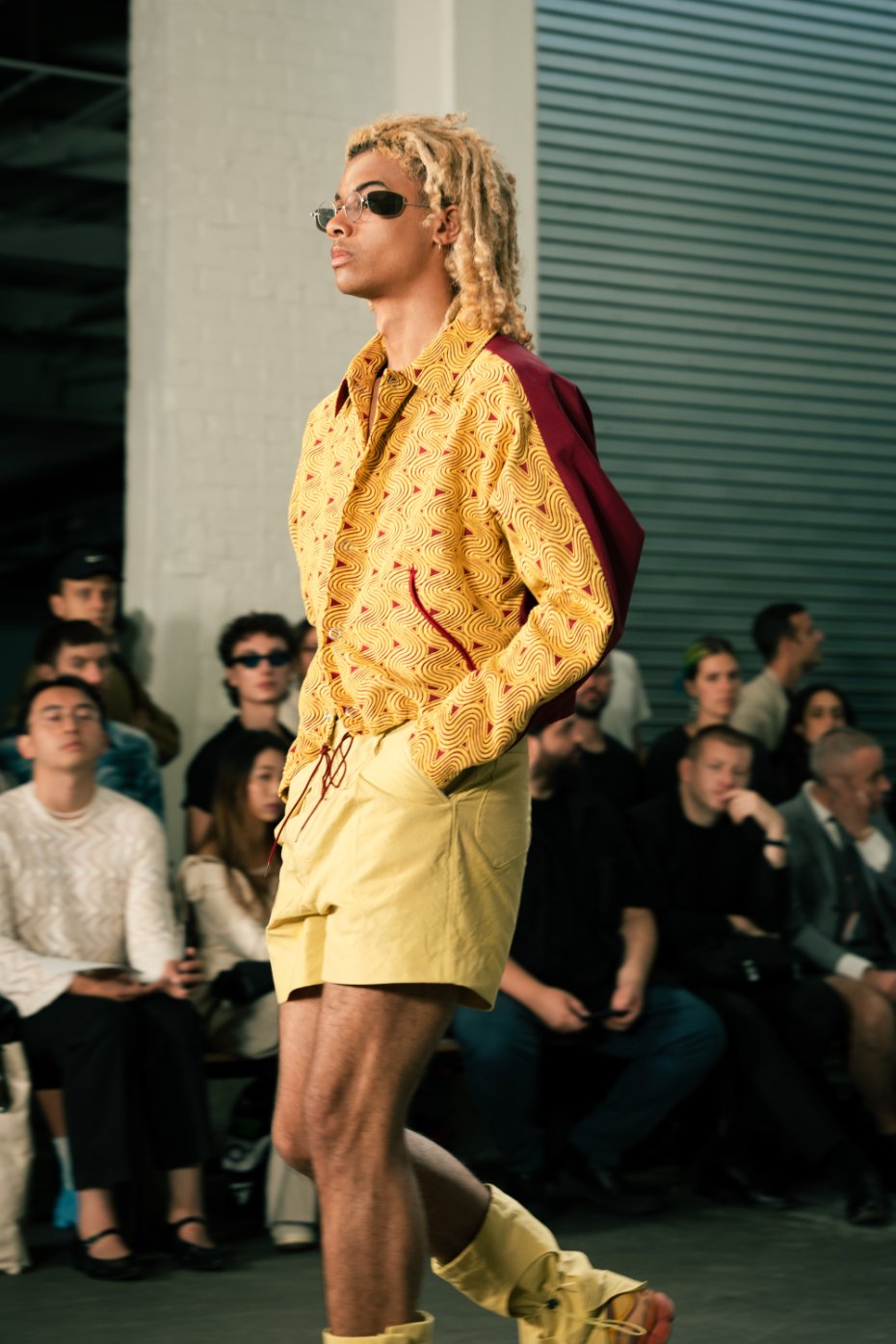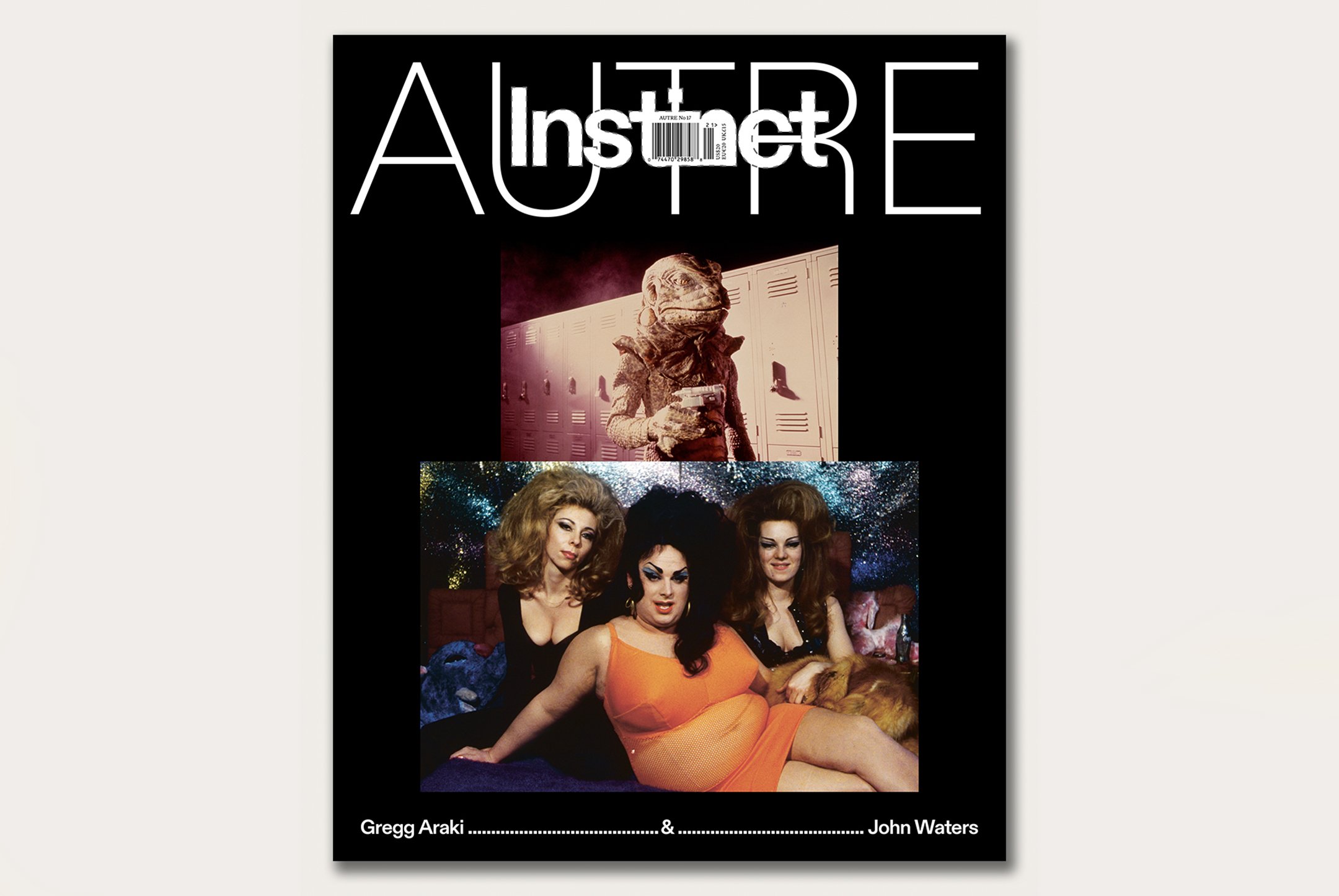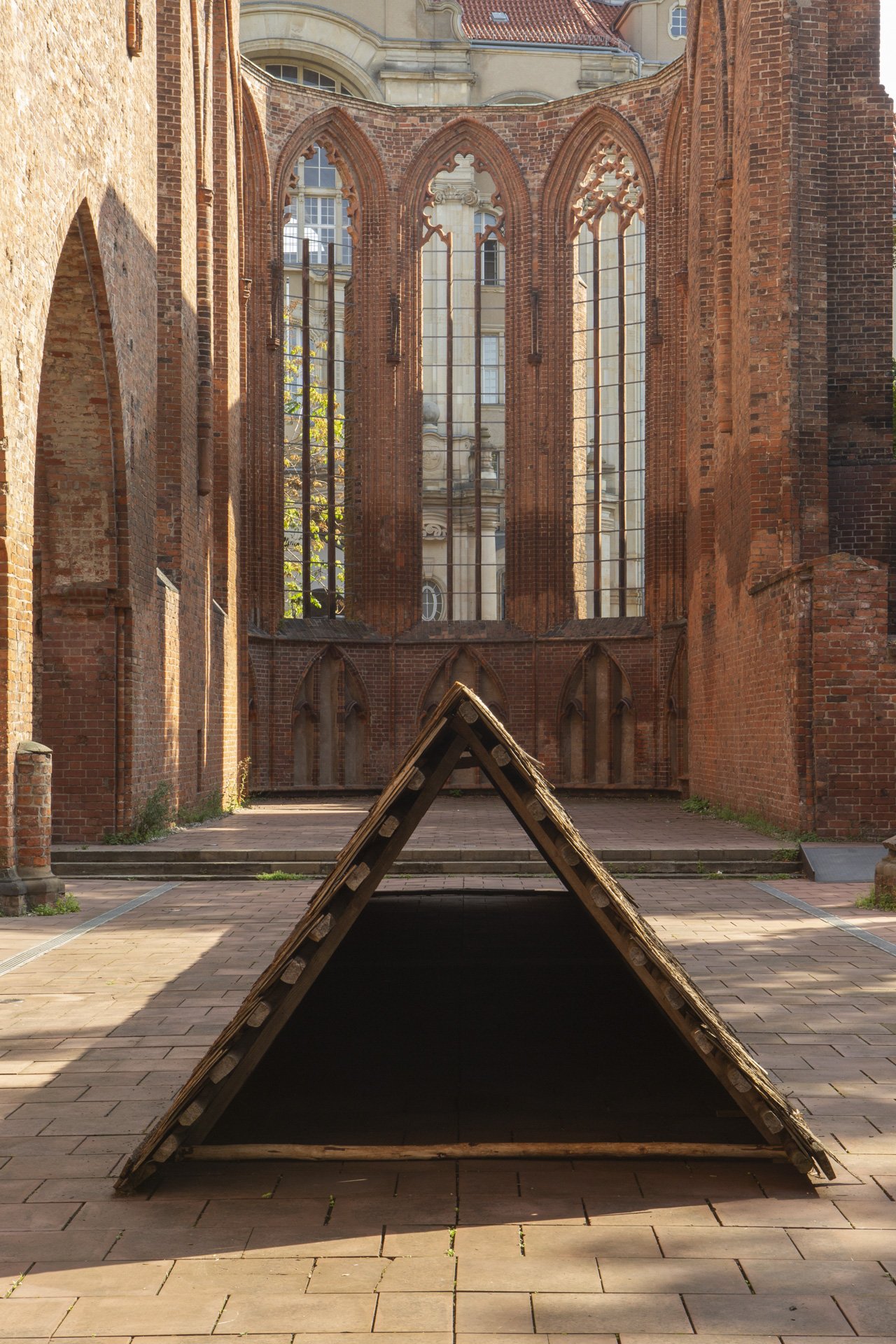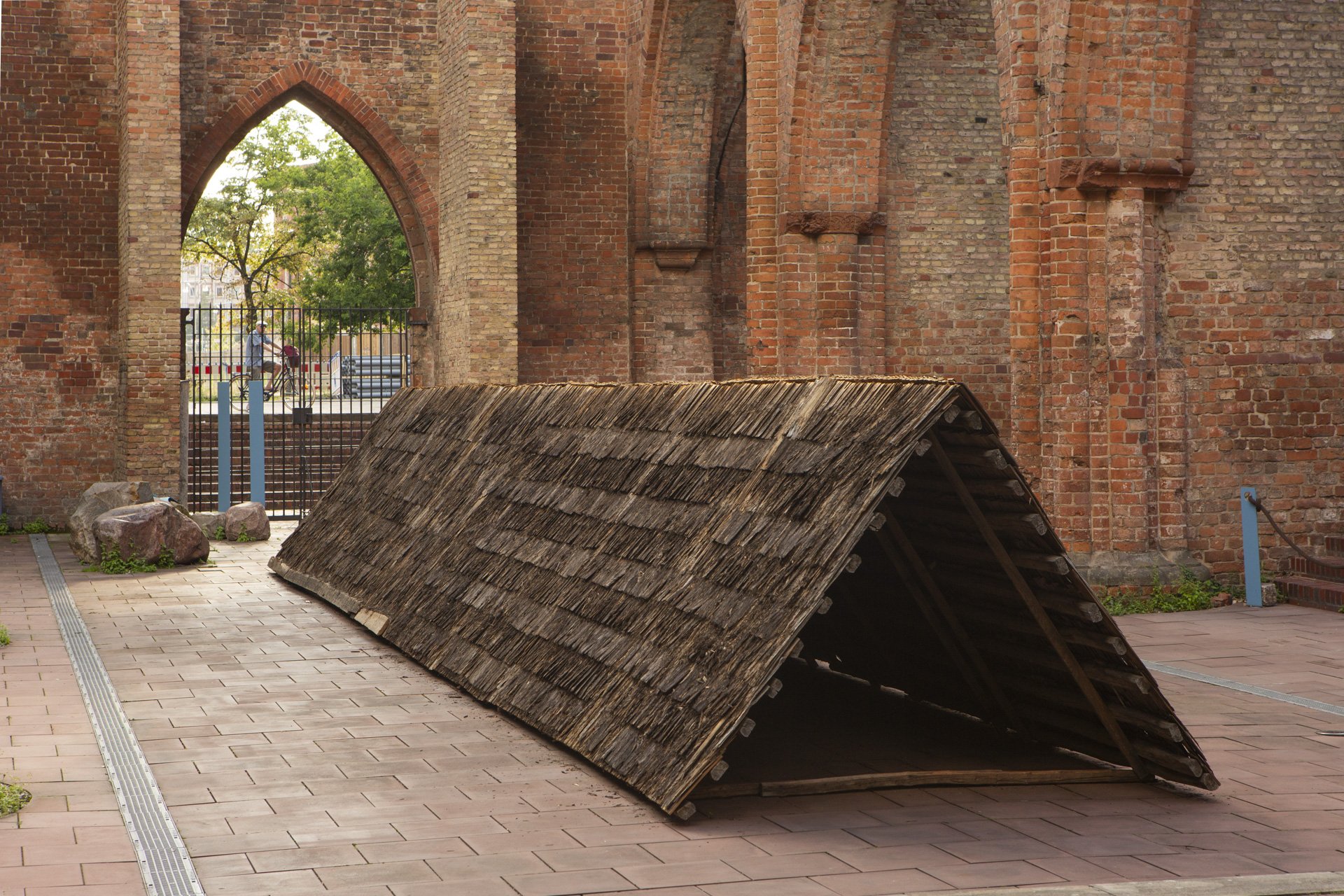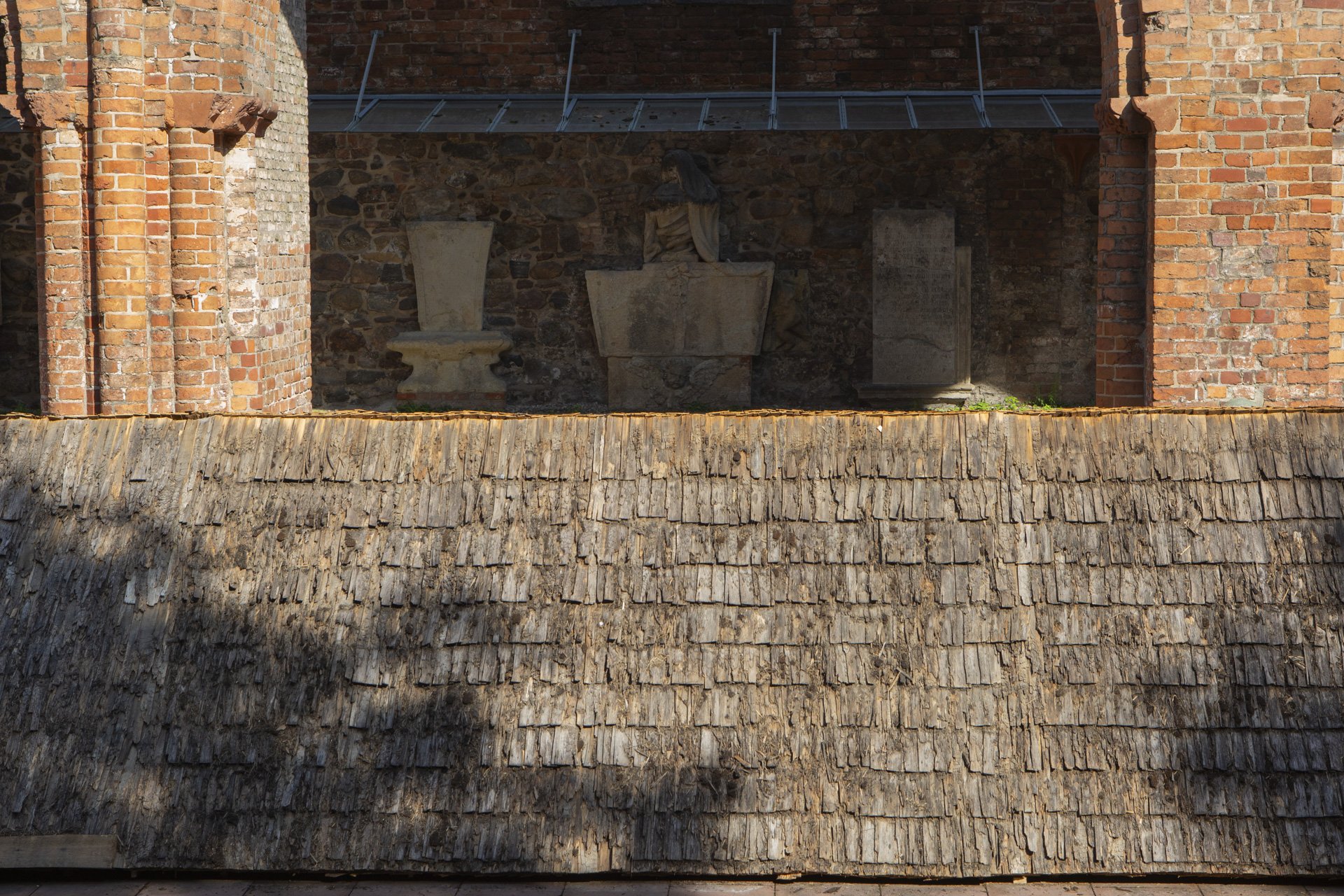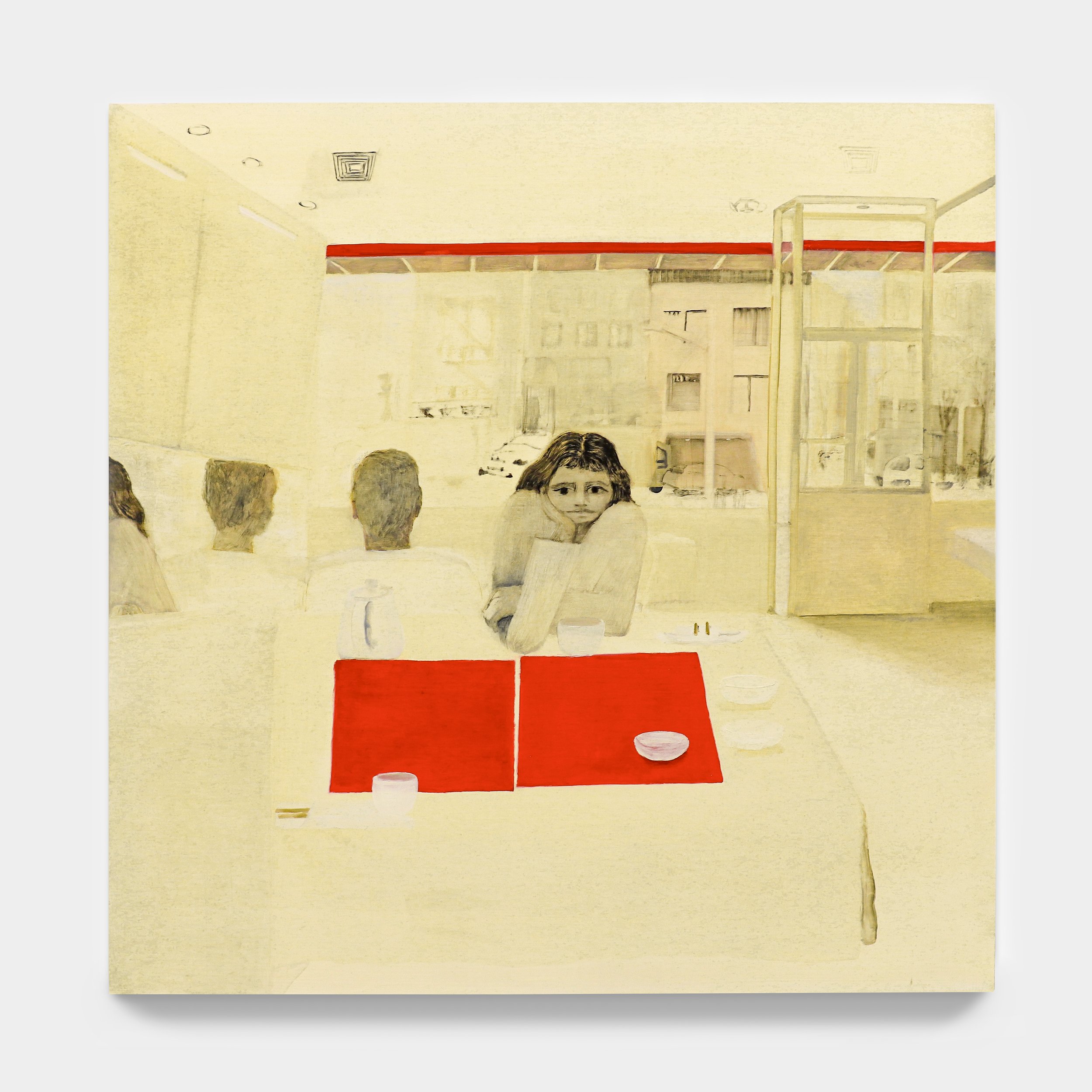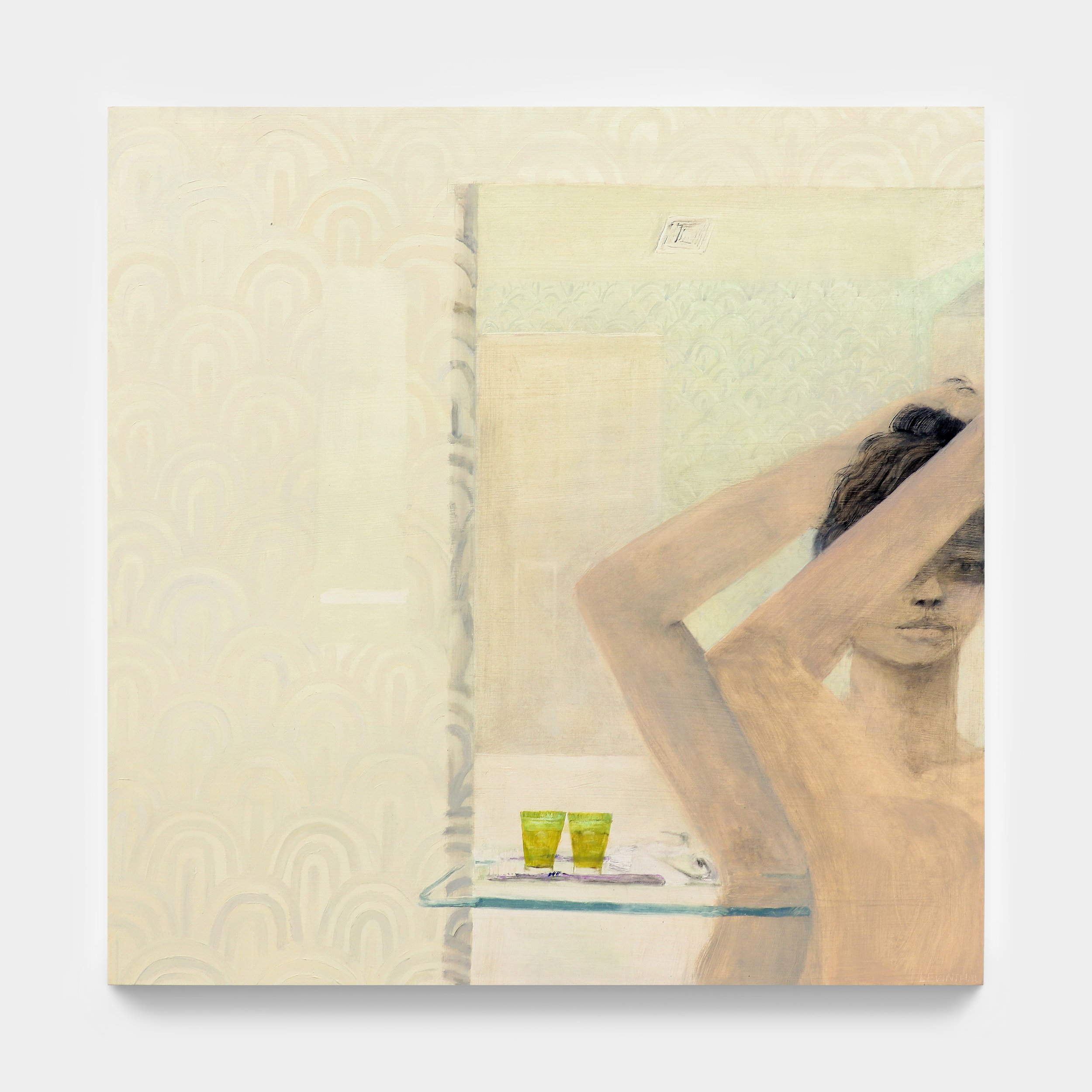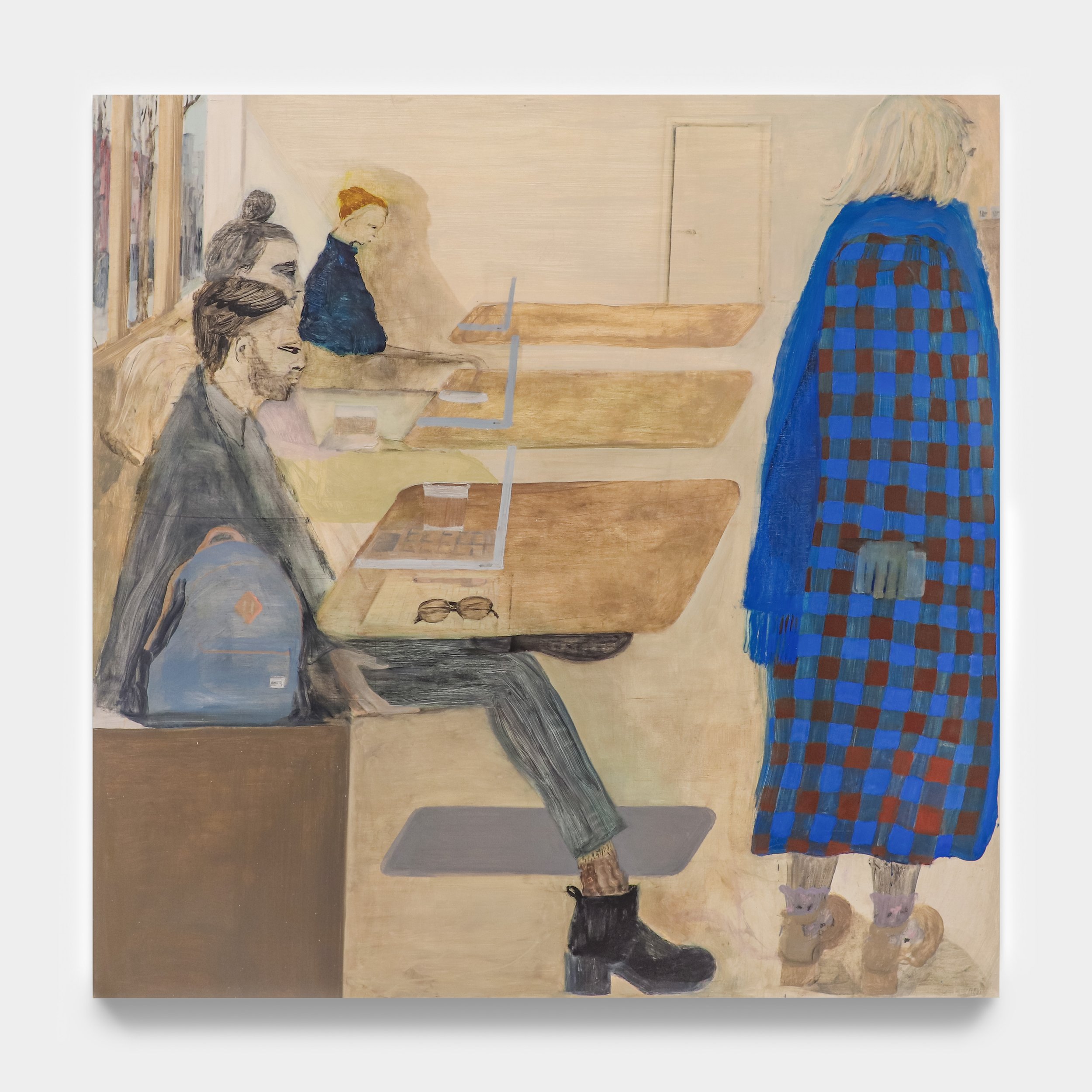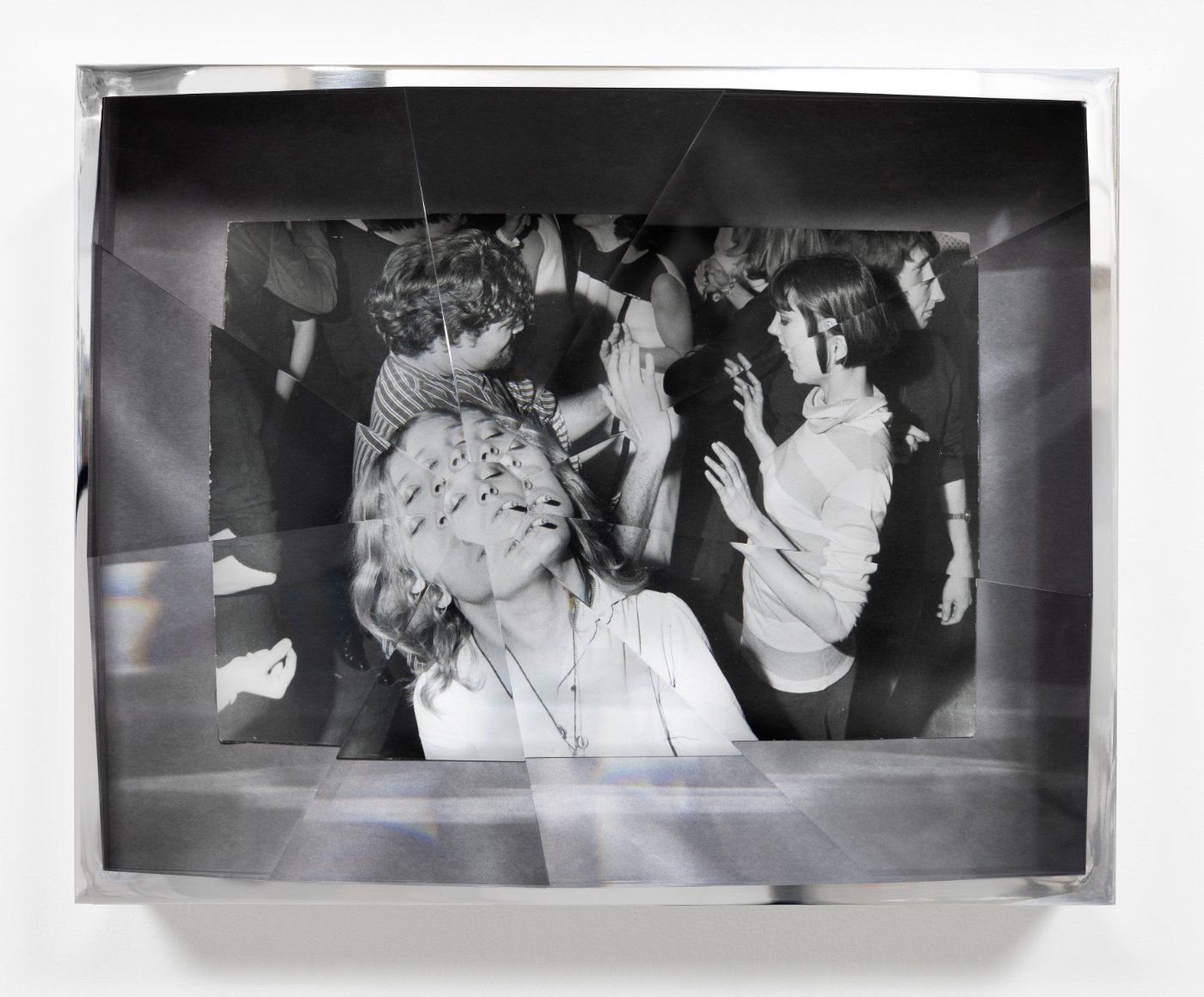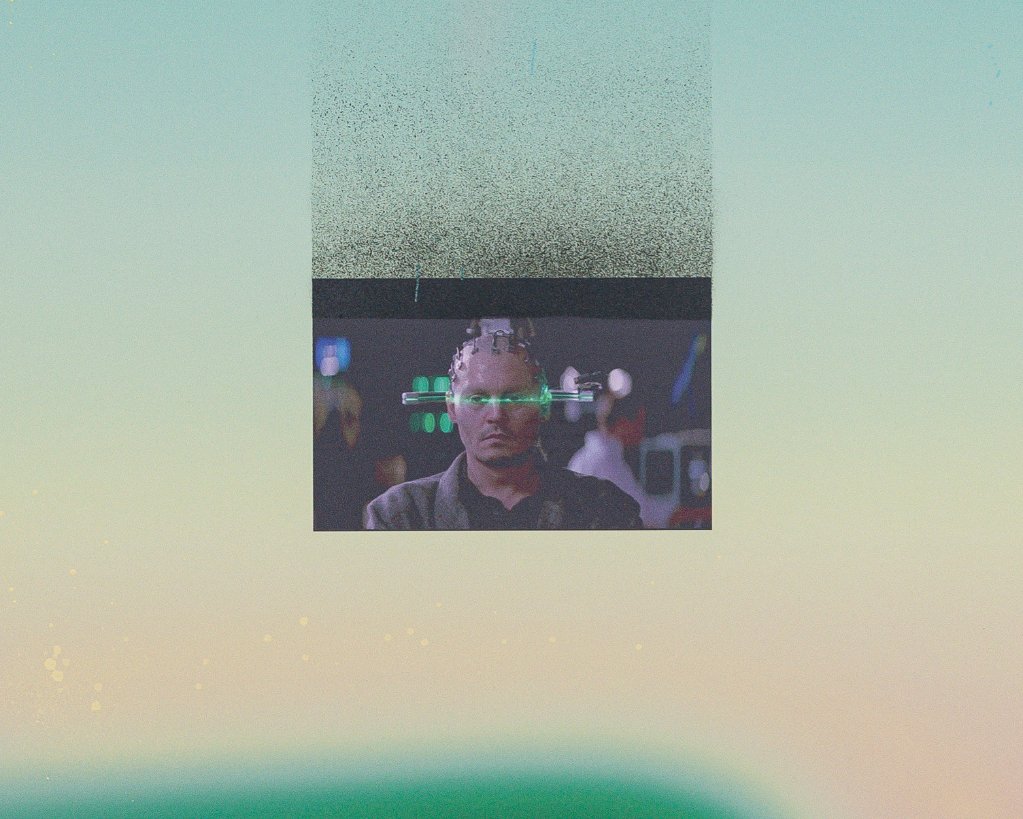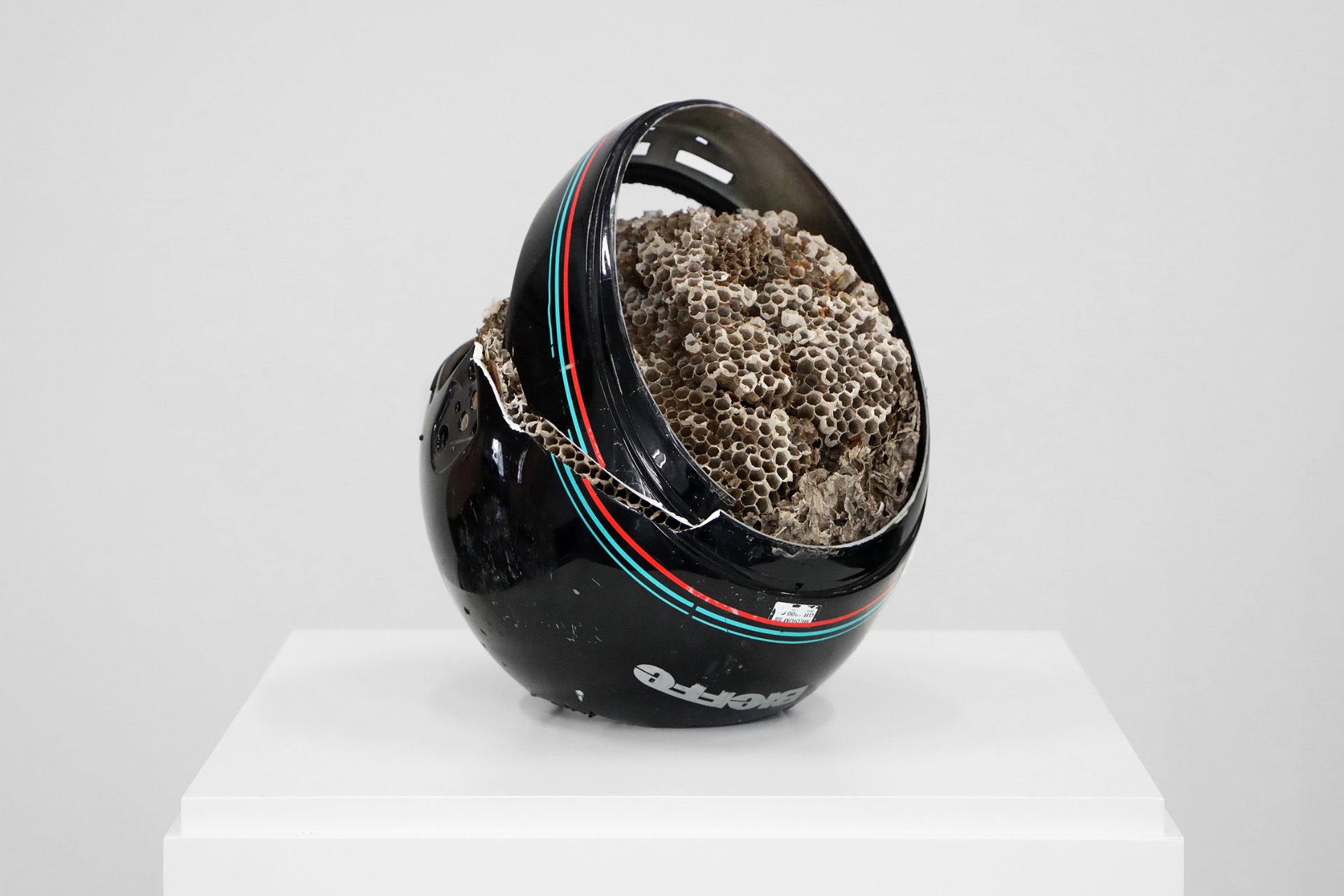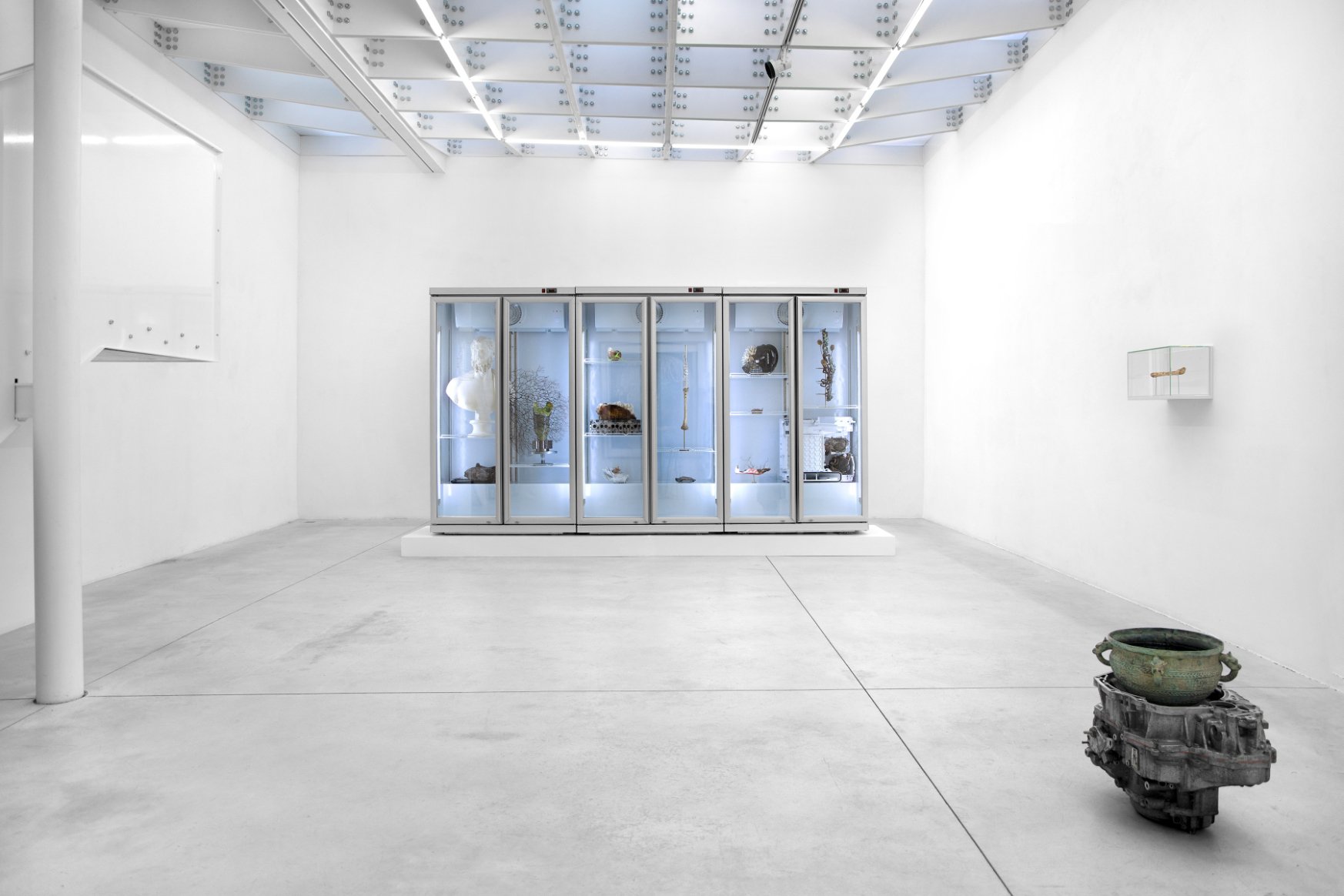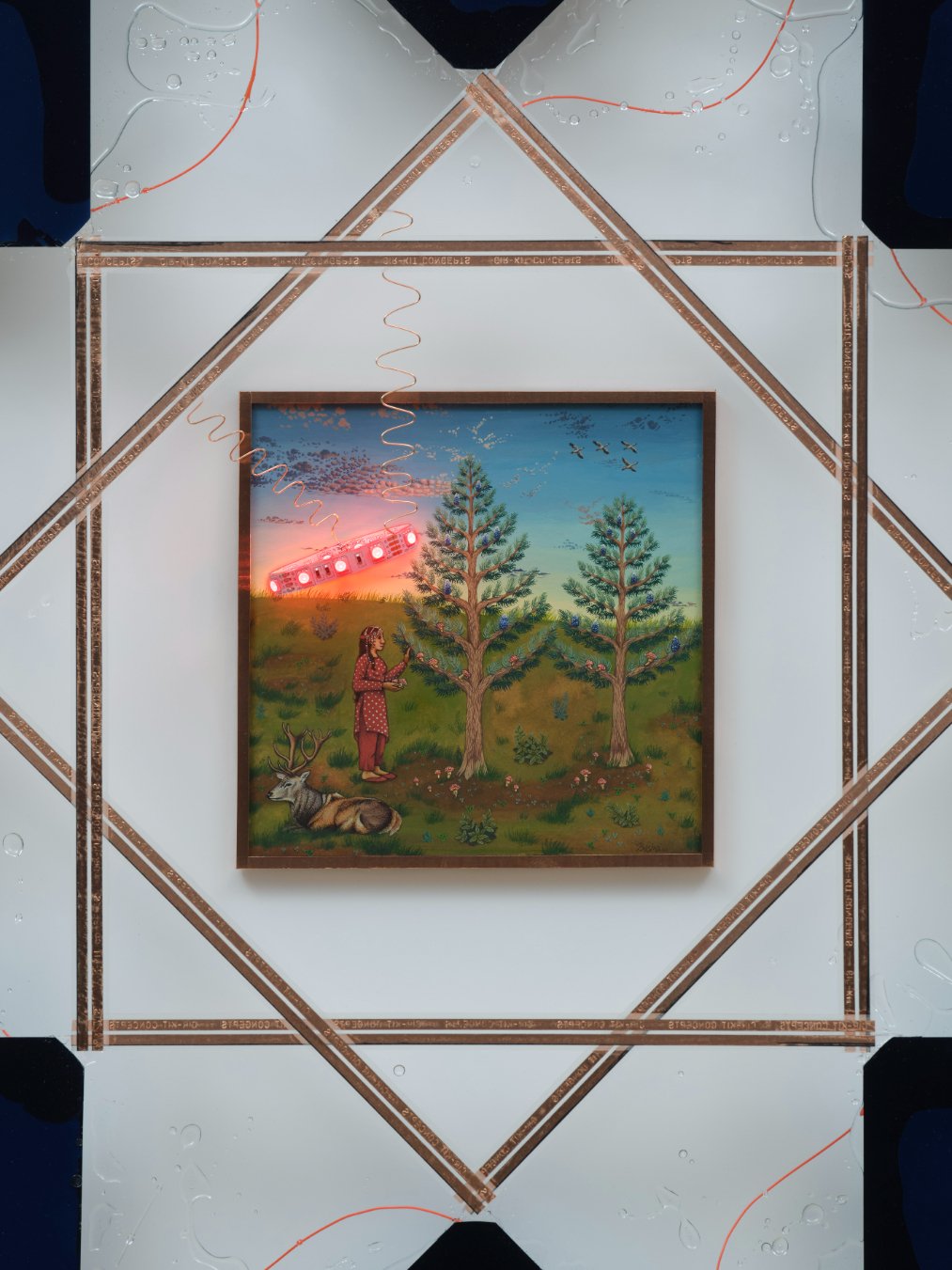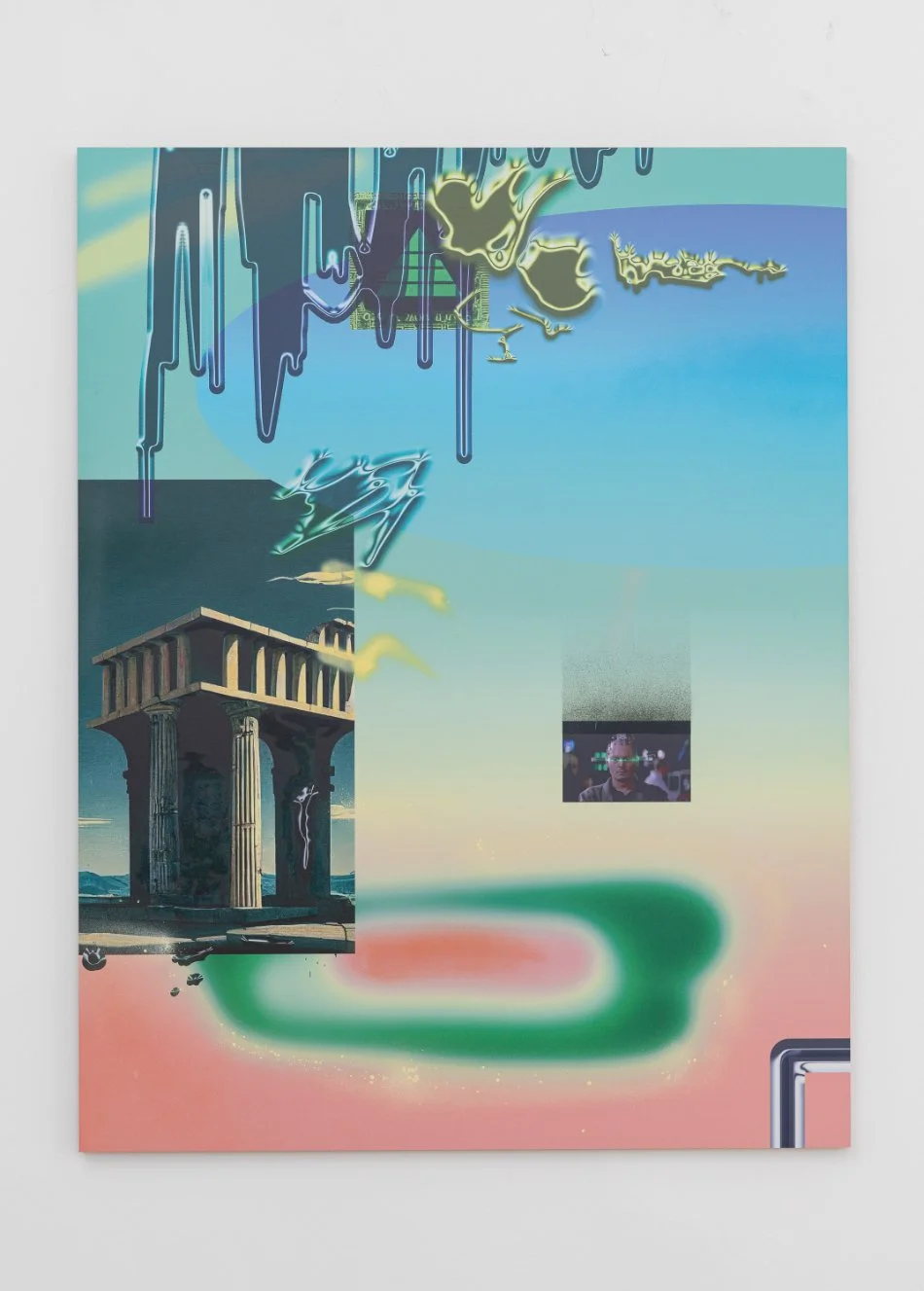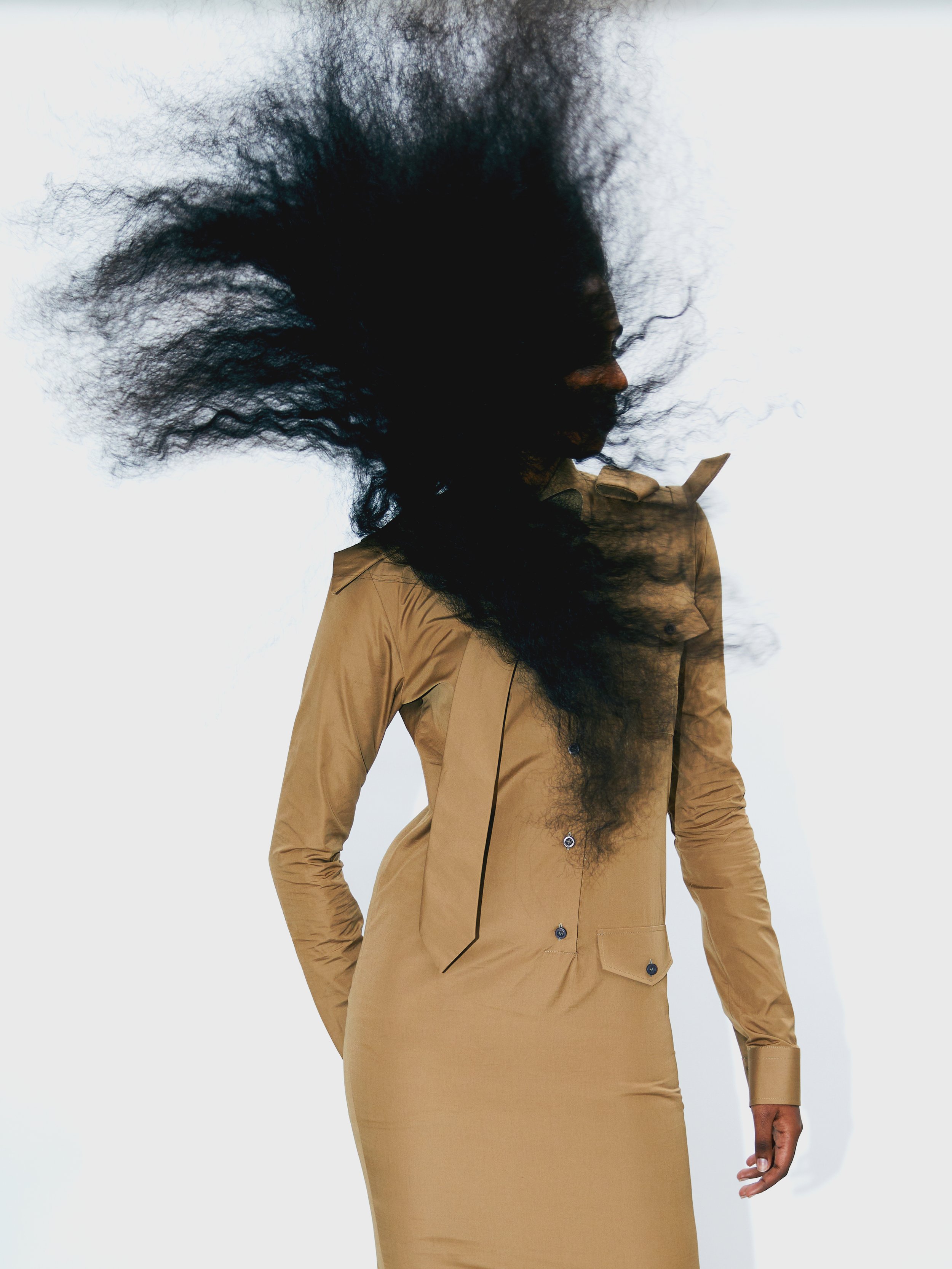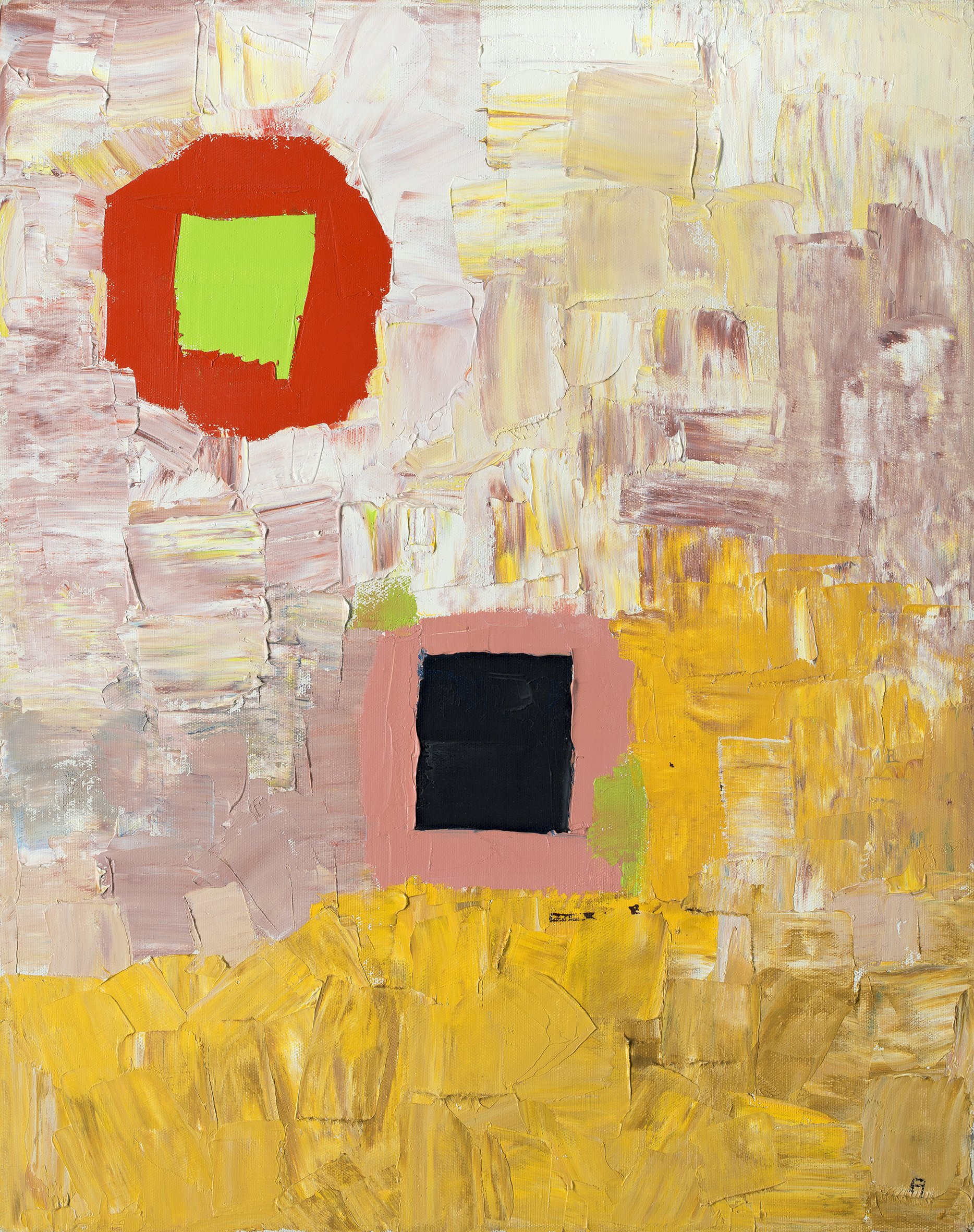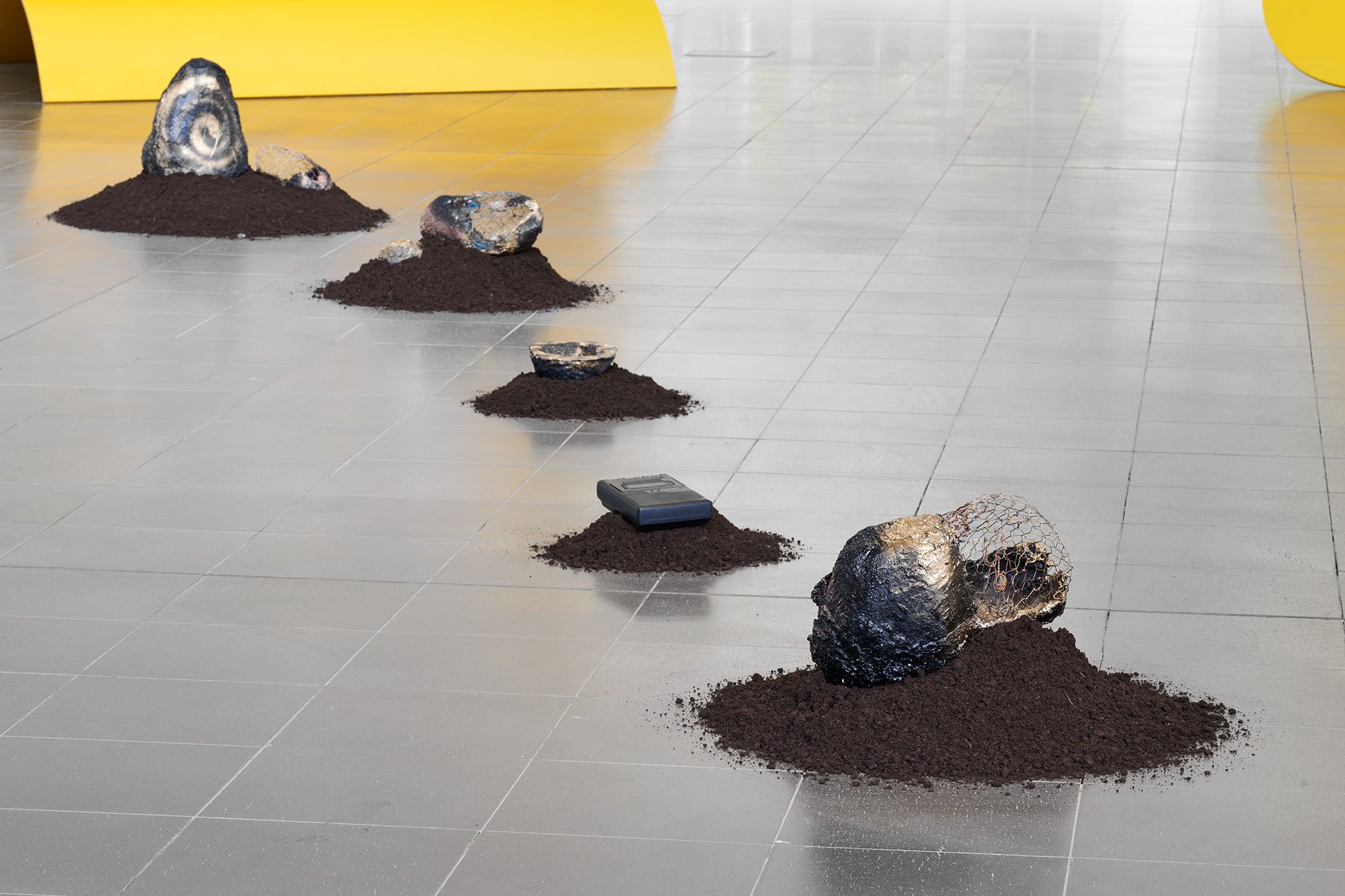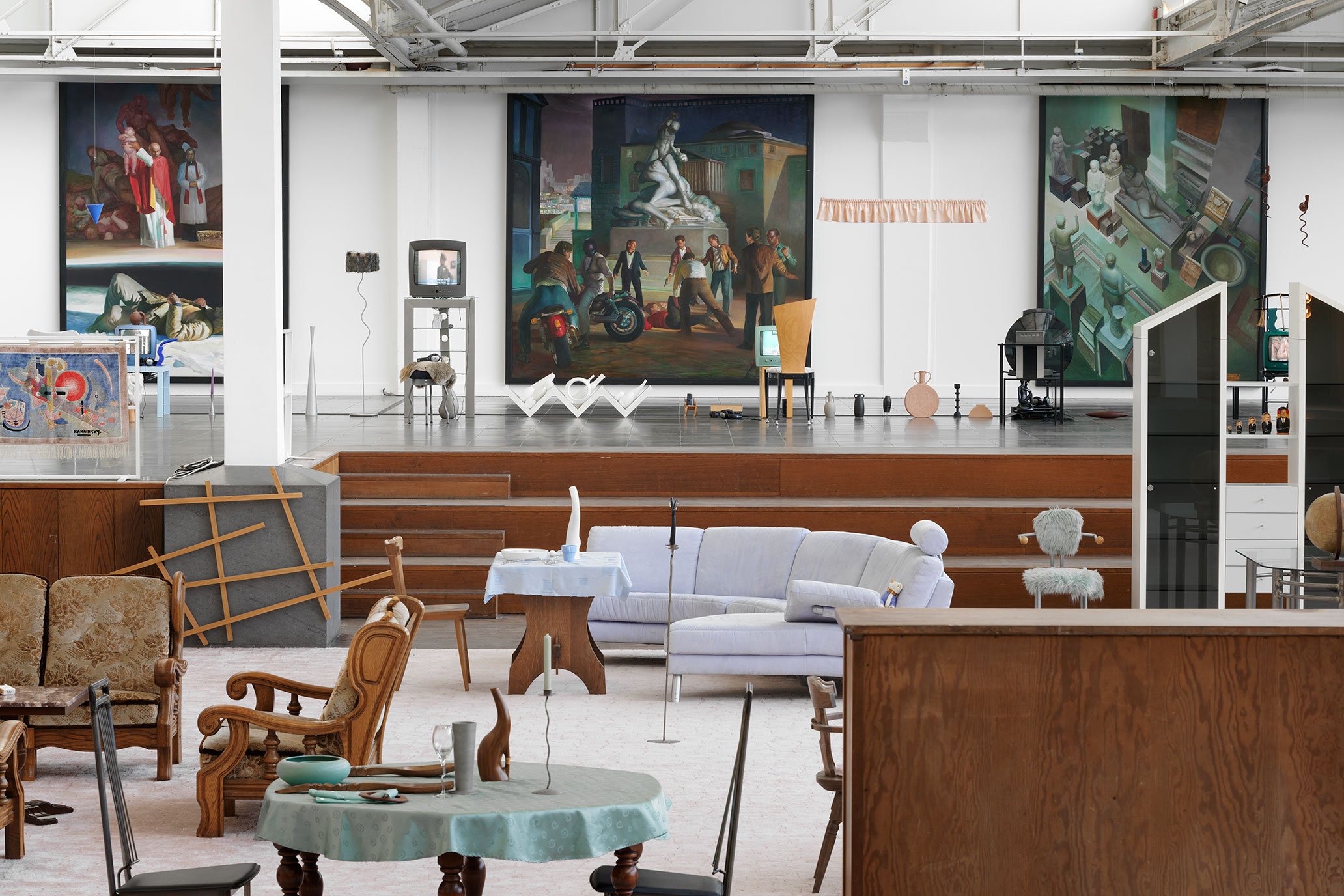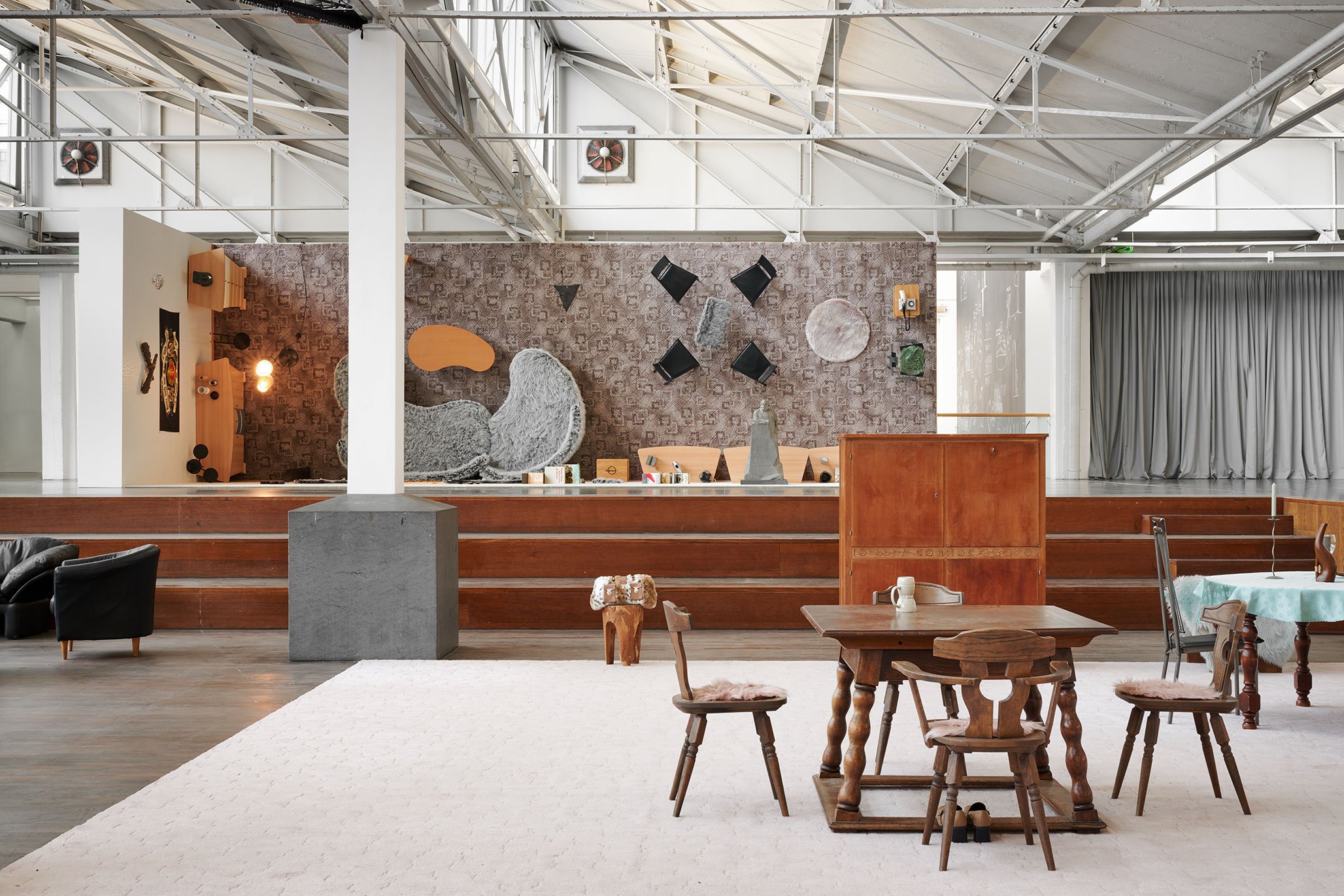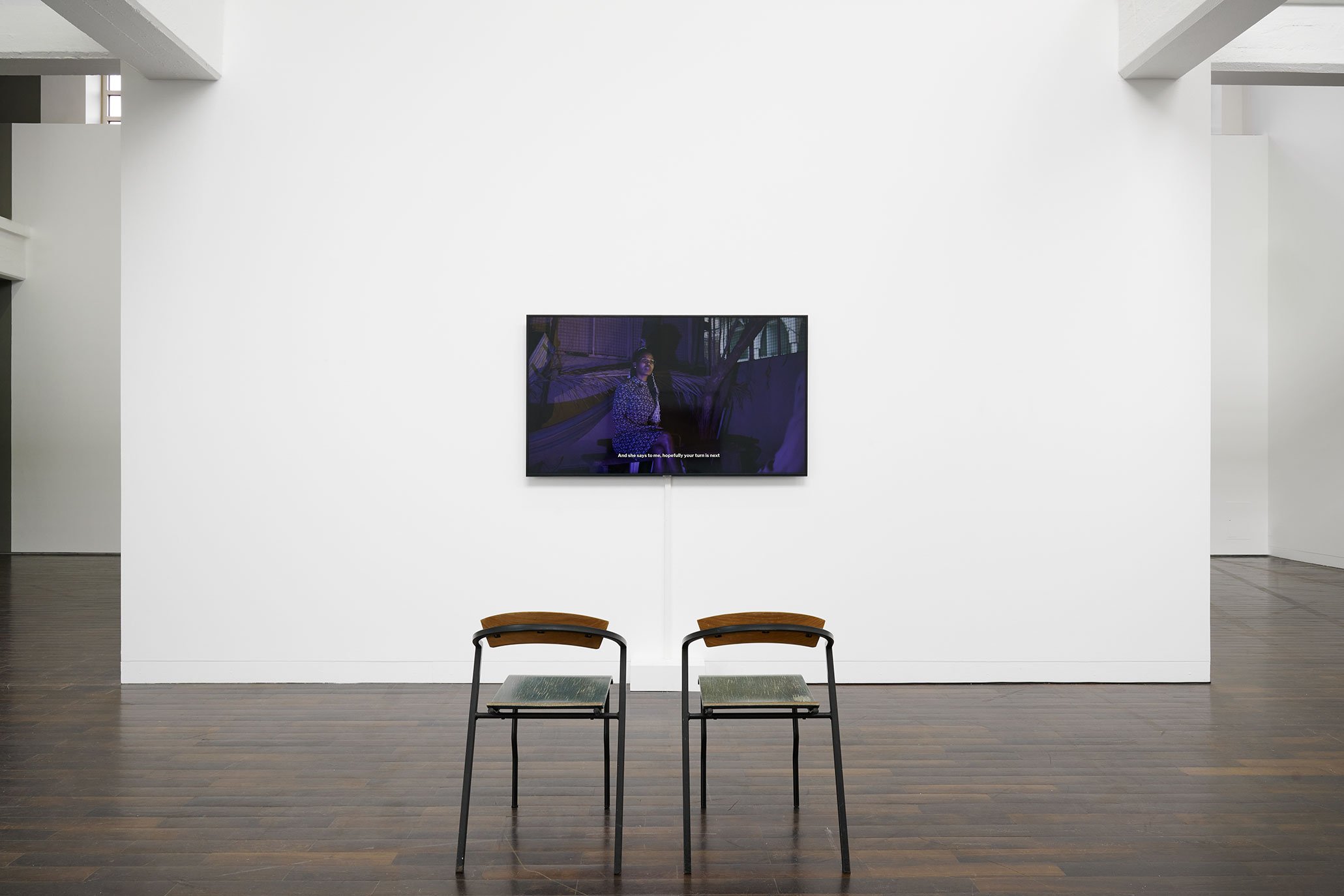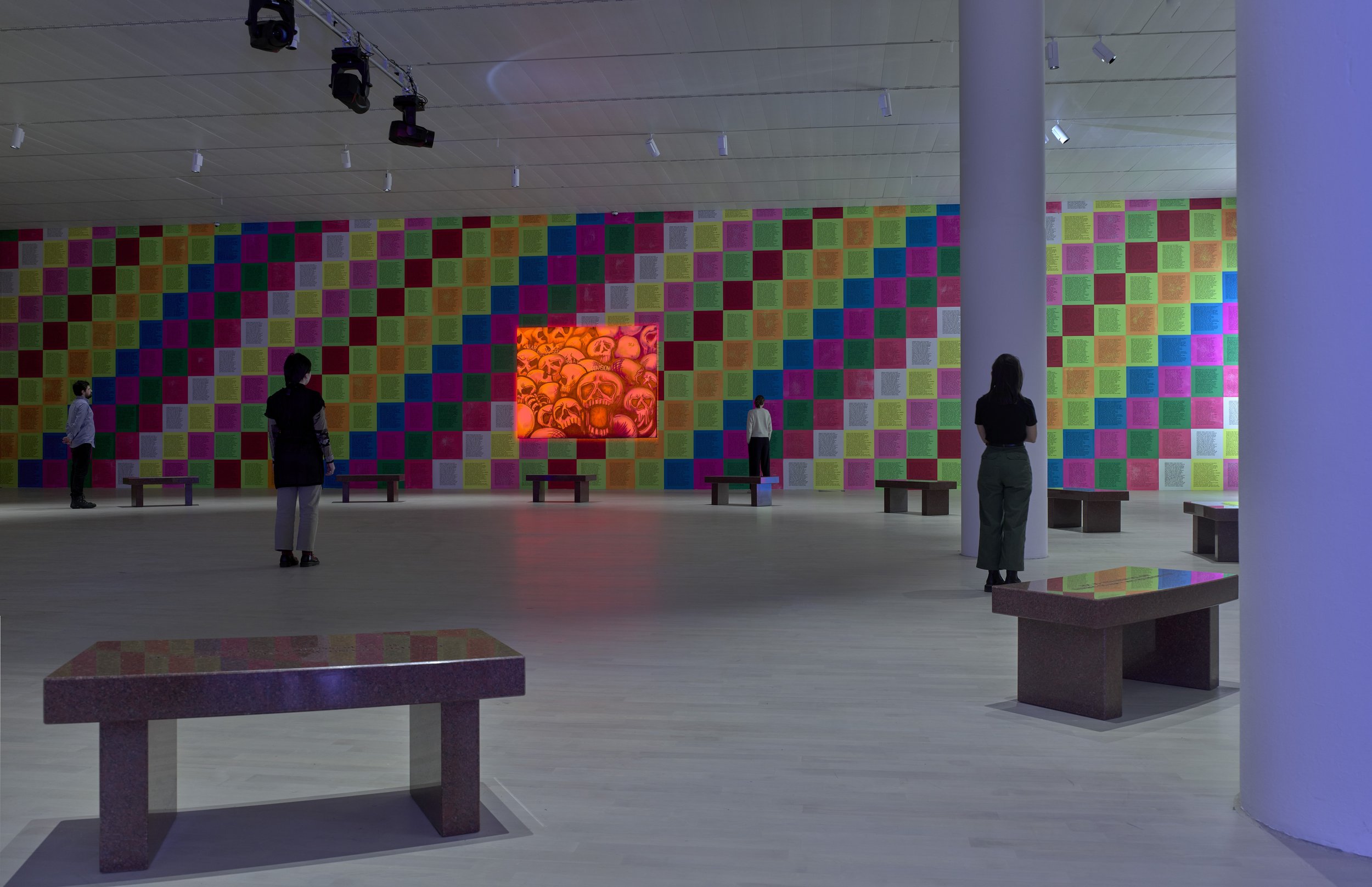Illiberal Lives, installation view, Ludwig Forum Aachen, 2023. Photo: Mareike Tocha
Illiberal Lives, a continuation of the 2021 Illiberal Arts at Haus der Kulturen der Welt in Berlin, extends the conversation about present day liberalism in society and questions the freedom of liberal promises of progress, revealing its “unfreedom” instead. It is an exhibition that keeps unfolding, visually and conceptually, post visit, triggering as much thinking as viewing. Upon entering the museum, one enters five large installations by Henrike Naumann and is completely immersed by nationalistic German design. While it initially seemed off-balance to have five installations of such scale by one artist in a group show, this dense core, which also includes works from the museum collection selected by the artist, forms a conceptual map for the exhibition overall. While it is dense, central and arguably local, Naumann’s presentation is so far and wide, it carries the weight and narratives of all other works, reverberating well beyond the museum walls into ancient and current histories. Melika Ngombe Kolongo’s work Nzita Dia Nza (2022), literally spirals out from the edge of Naumann’s installations in the central hall and into another gallery. Small mounds of earth holding metallic sculptures, a cassette recorder, and small plants form a divine route rooted in ancient Congolese geomantic practices that lead us to a video installation, Invisible Gestures (2022), and dovetail Kolongo’s practice as a DJ with her visual art through sound, drawing, the body, and nature. An interdisciplinary practice continues in this same gallery with Bassem Saad’s videos and prints. Concise and beautifully written textual fragments overlay visual landscapes of Beirut in the films and perhaps of Berlin, Marseille, and Eastern Mediterranean places in the prints. The series of prints Suppose that Rome is not a human habitation (2022-23) are poems from anonymous locales, or at least a word from elsewhere that holds the power to influence the future of its destination or recipient by expanding their view. Saad’s video works, Kink Retrograde (2022) and Congress of Idling Persons (2021) rooted in specific events, do not only inform us of what happened––the October 2019 Lebanese uprising, the aftermath of the 2020 explosion in Beirut, the murder of George Floyd––their imagery form the context of the lives of the speakers in the film, how it formed and influenced their personal existence within community and the potential of alternative futures. The exhibition goes into a hundred directions through art from the 20th and 21st centuries referencing multiple wars, murders, and trials. It creates and untangles myths, it is through those myths that love, beauty and hope, an array of ingredients for the future persist, and is precisely as well where freedom can be found or can be narrated into existence, some day.
Jenny Holzer at K21 (Kunstsammlung NRW), Düsseldorf


